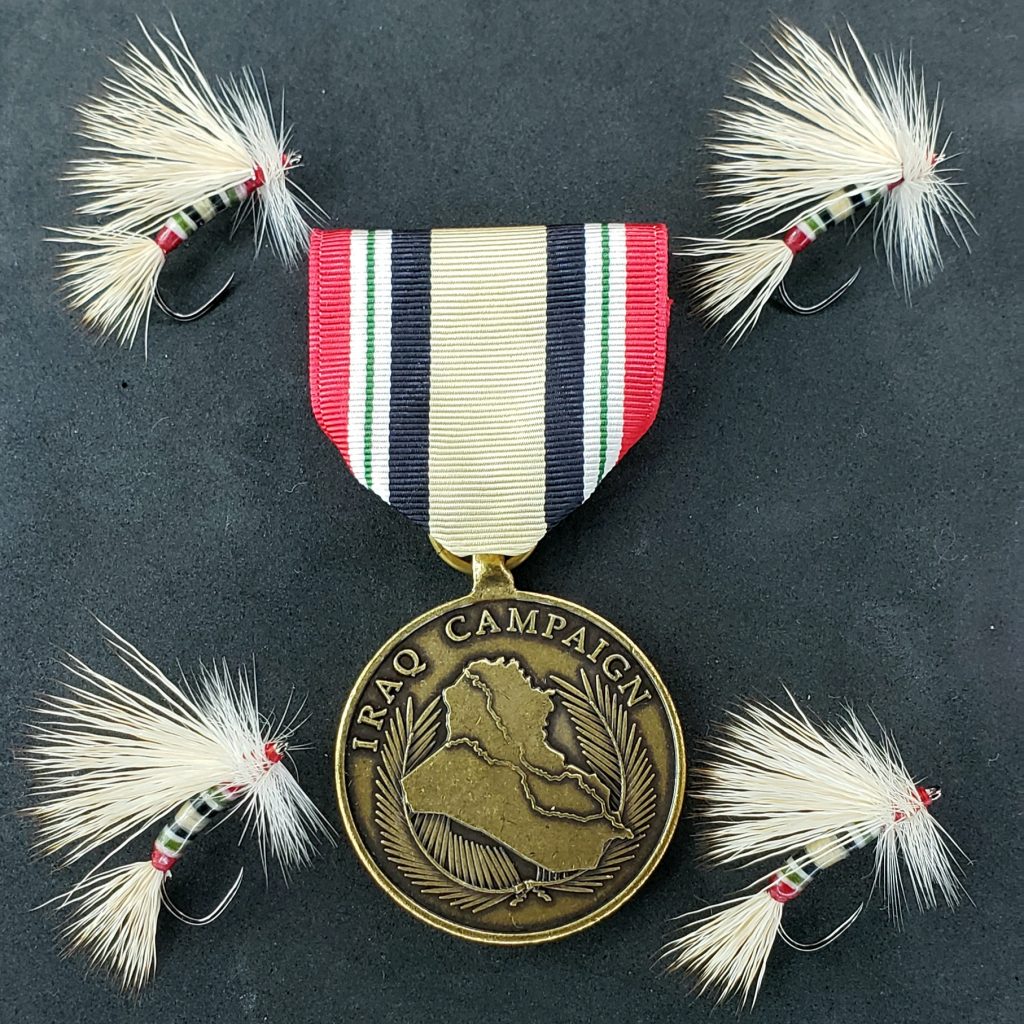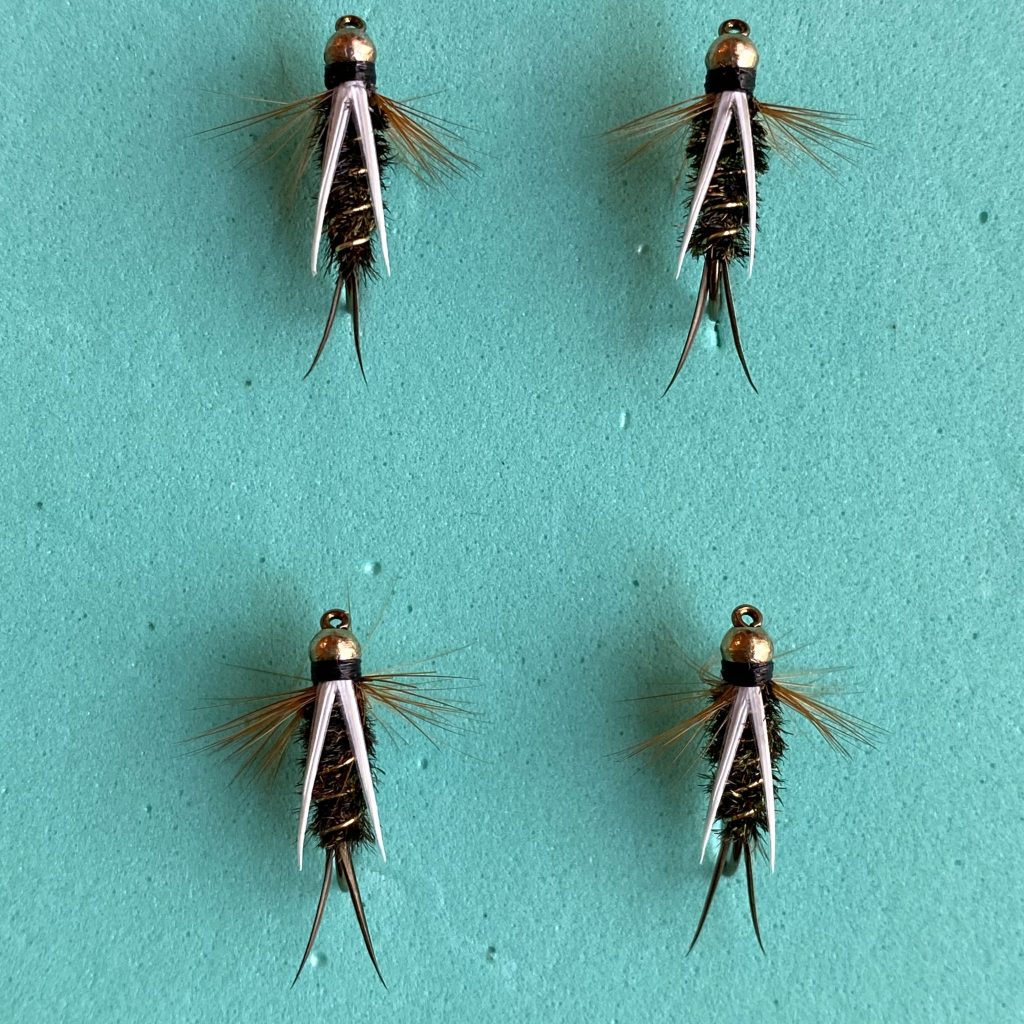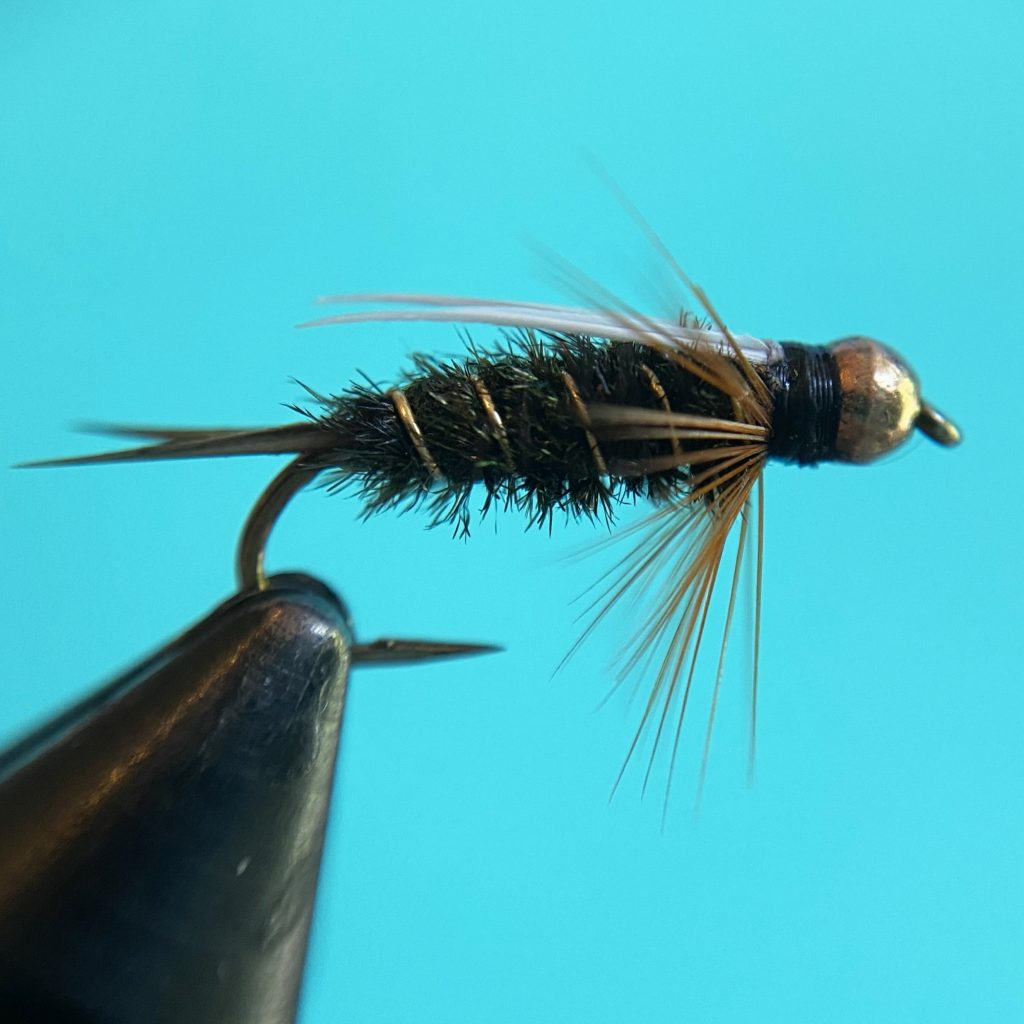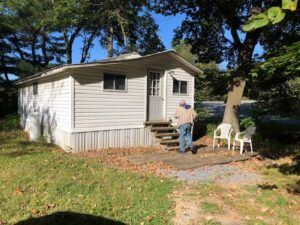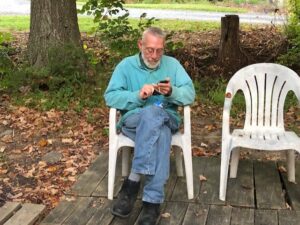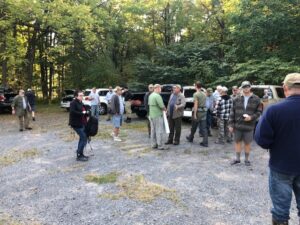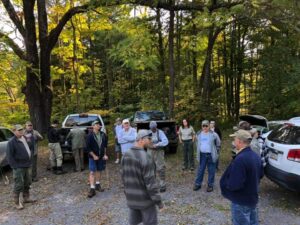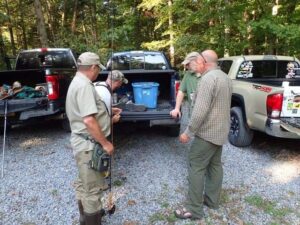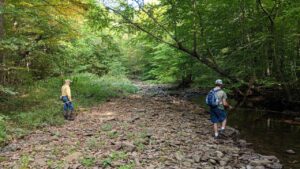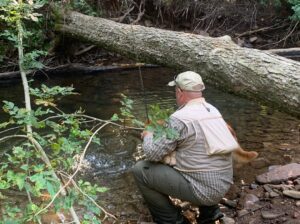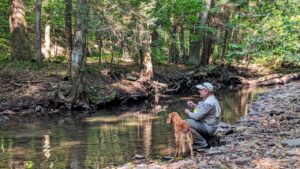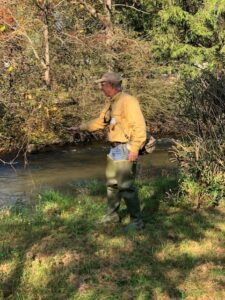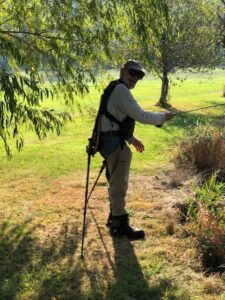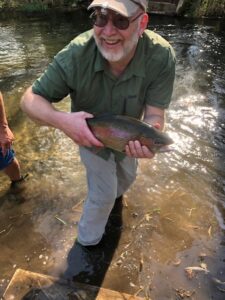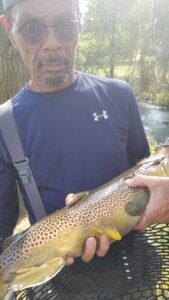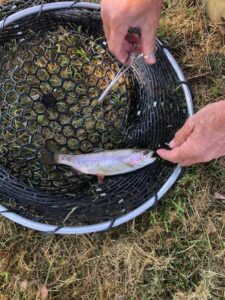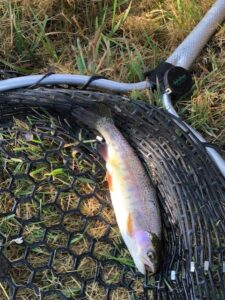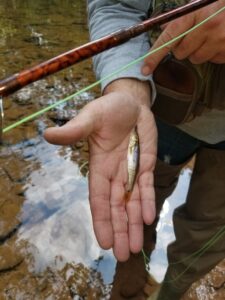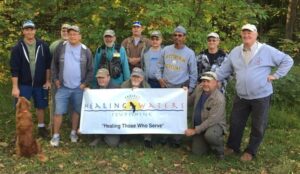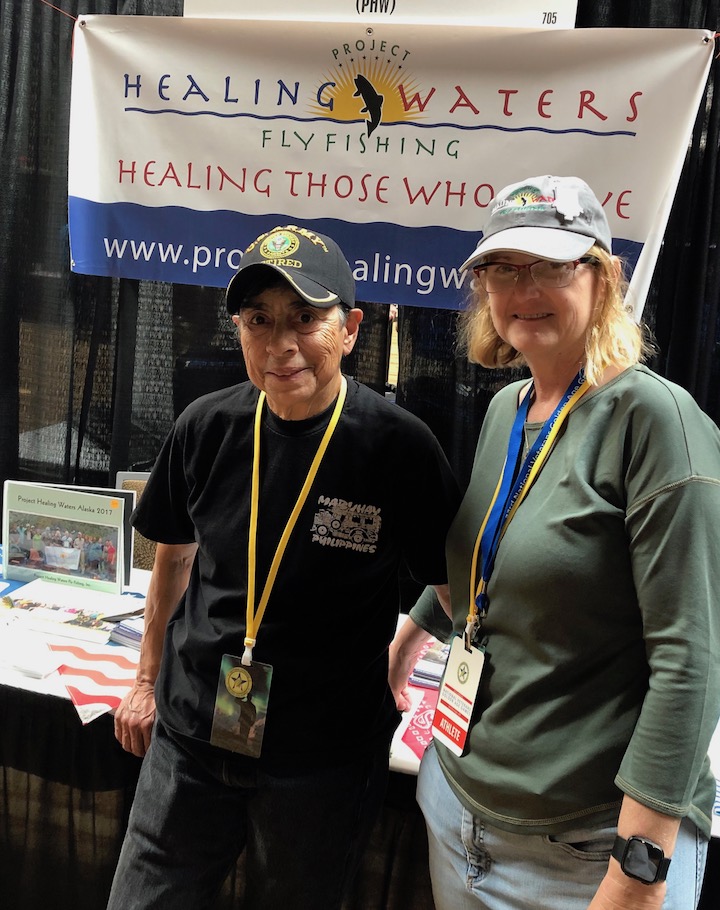Archives
Spring Browns on the Savage River
May 25, 2023
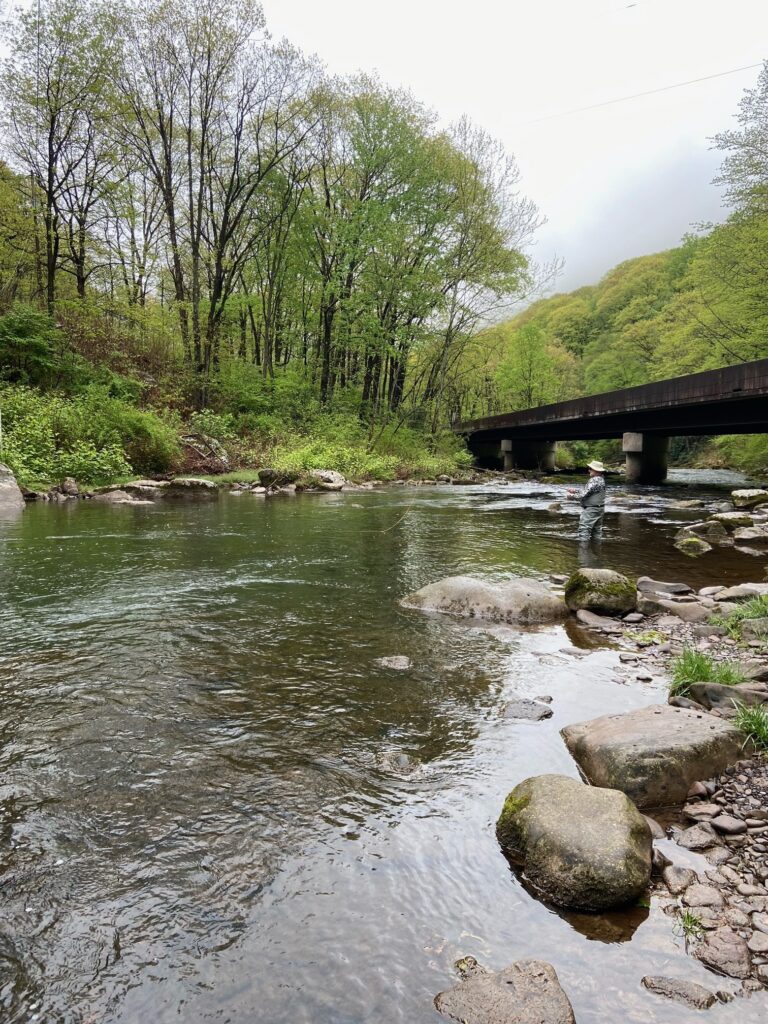
April 28th – 30th, 2023
By: Tim Metzger
Last October, the DC Program booked a weekend trip to the Savage River in Swanton, Maryland, our closest “Top 100” trout stream. This was to be our first overnight trip since before the pandemic, but due to inclement weather, the trip was postponed until April 2023. Of course, early in the week of the event, the forecast looked bleak with a 99% chance of rain on Friday and Sunday, with Saturday being hit or miss. No matter what, we knew the scenery would be beautiful and the time spent away from traffic, work, and the stressors of day-to-day life would be as therapeutic as ever.

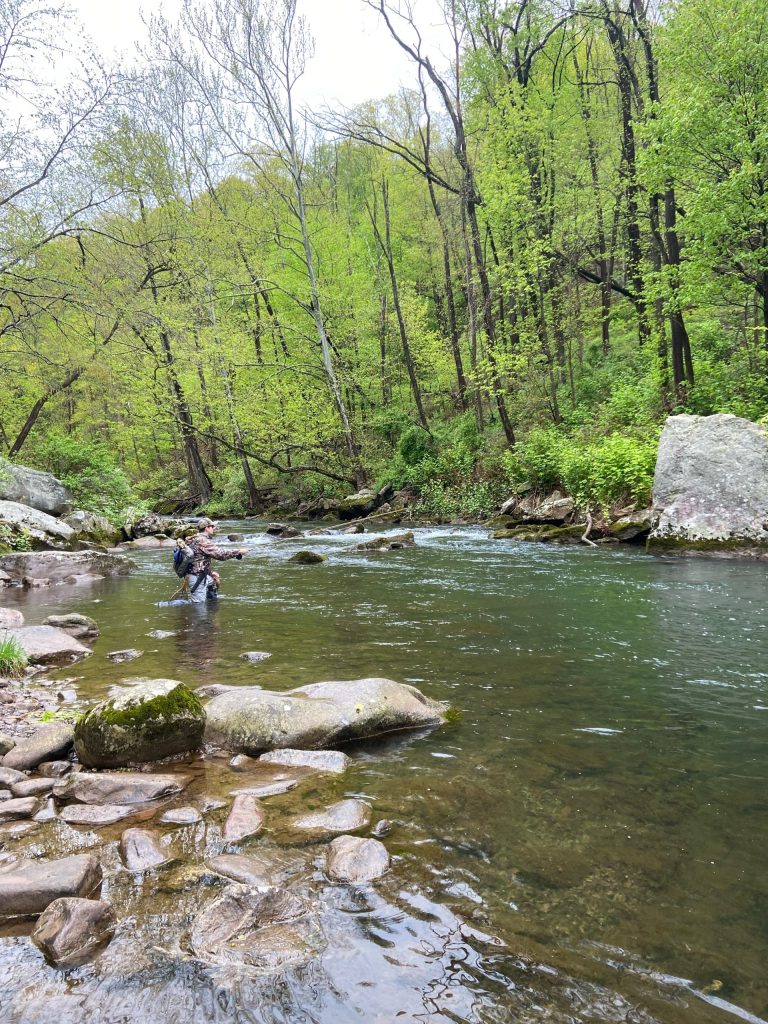
As the week went on the forecast improved slightly, and the owner of Savage River Outfitters assured me we needed to come, and that the Blue Quill hatch was ON! The Blue Quills hatch normally begins in early April in Appalachia, and these small mayflies hatch in significant numbers at a time when hungry spring trout are just beginning to take dry flies again after winter.
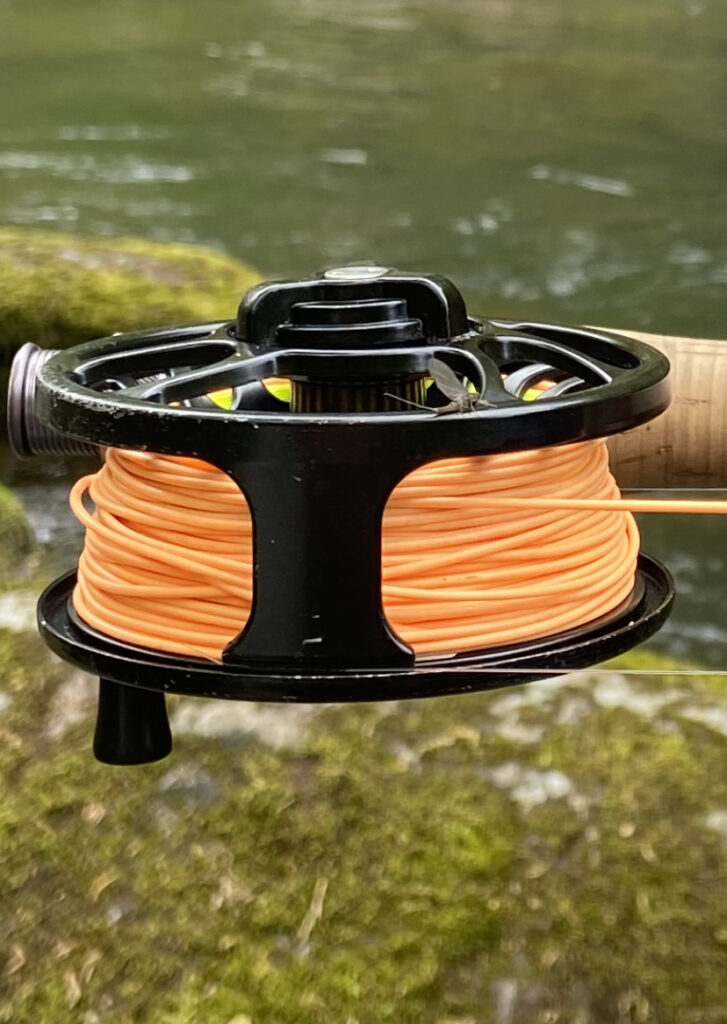
One aspect that made this trip special is that Mike Evans, the owner of Savage River Outfitters, is himself a Navy Veteran! Anyone who has visited Savage River Outfitters has probably seen Mike sporting a Navy hat. This Veteran connection made the trip just a little more impactful. Another special part of this trip is that it demonstrates the continued commitment from the National Capital Region Programs to share events across Programs. DC was honored to share this trip with a participant from Fort Belvoir, and not only was he the life of the party, but he was a ringer with the brown trout too, as you will see below!
The group arrived Friday afternoon to rainy conditions, as the forecast predicted. The water temperature was pretty cold and we were nervous things may not pick up. Nobody caught fish Friday afternoon, but everyone was well-fed and well-rested for the following day. Saturday morning the forecast was spotty, but we finally caught a break. Not too cold, sun poking through the clouds, water temps rising slightly, and some Blue Quills hatching! After getting rods put together, and some quick casting lessons on the lawn, participants were paired up with guides and hit the water.
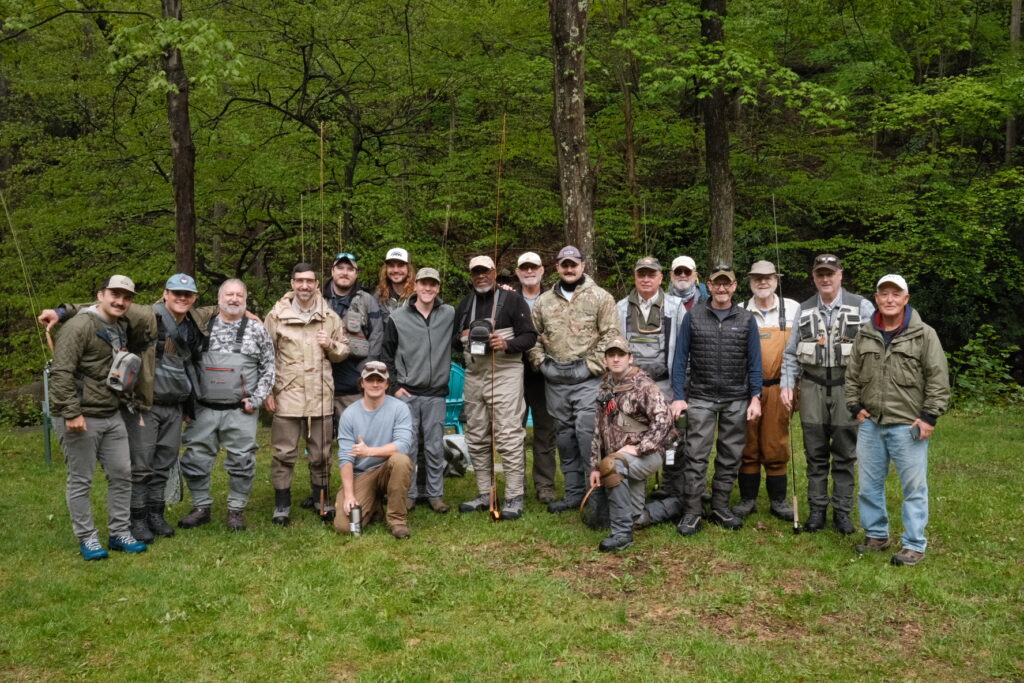
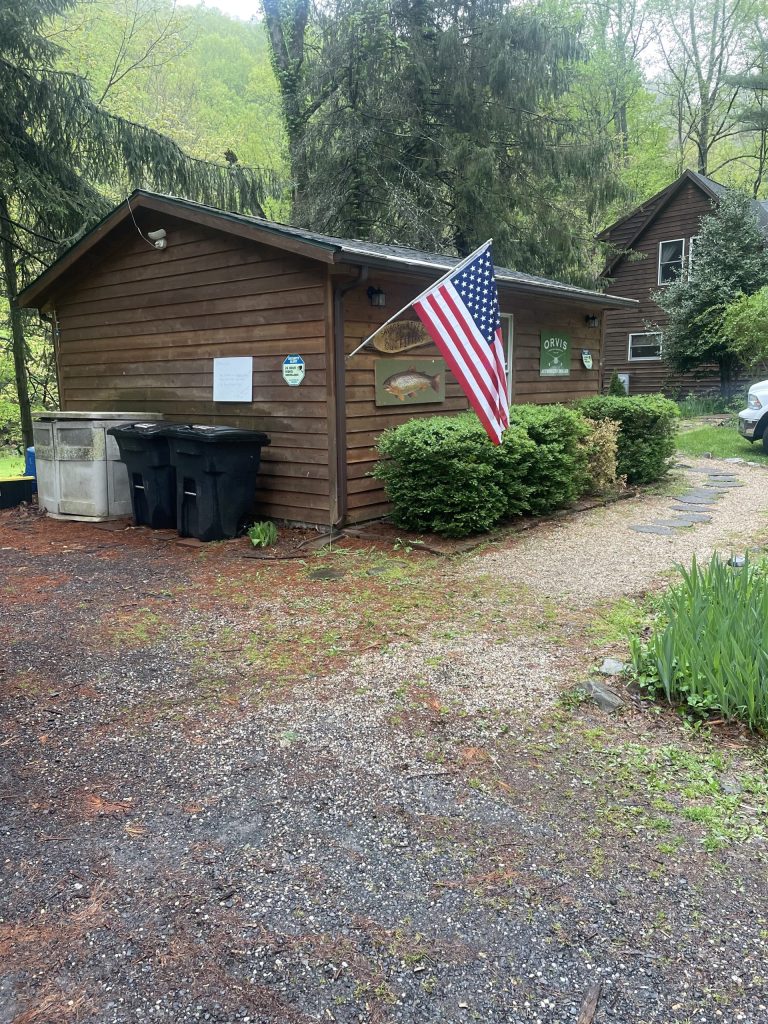
Right away it was pretty obvious it was going to be a good day – the brown trout were eating on the surface and taking nymphs.
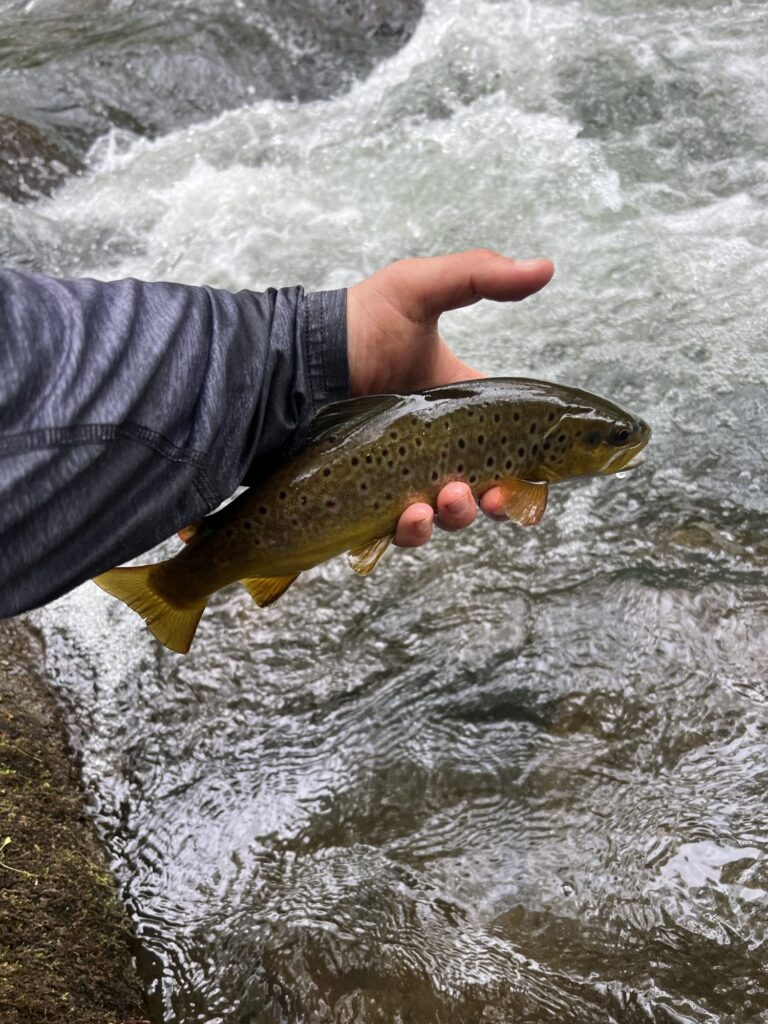
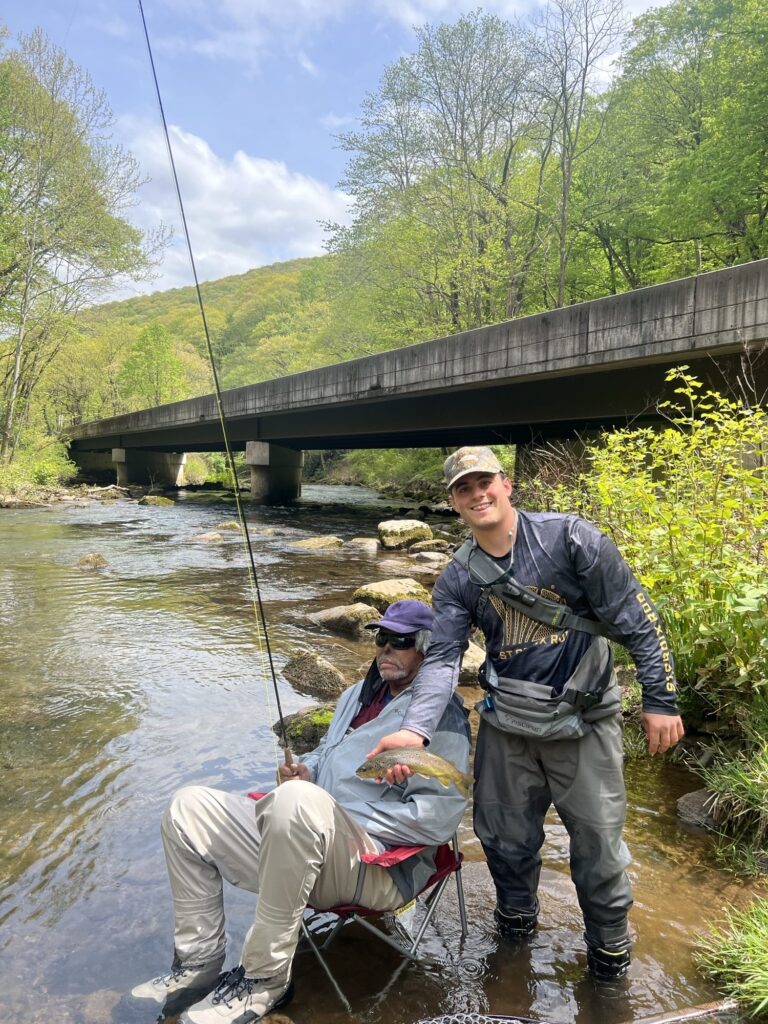

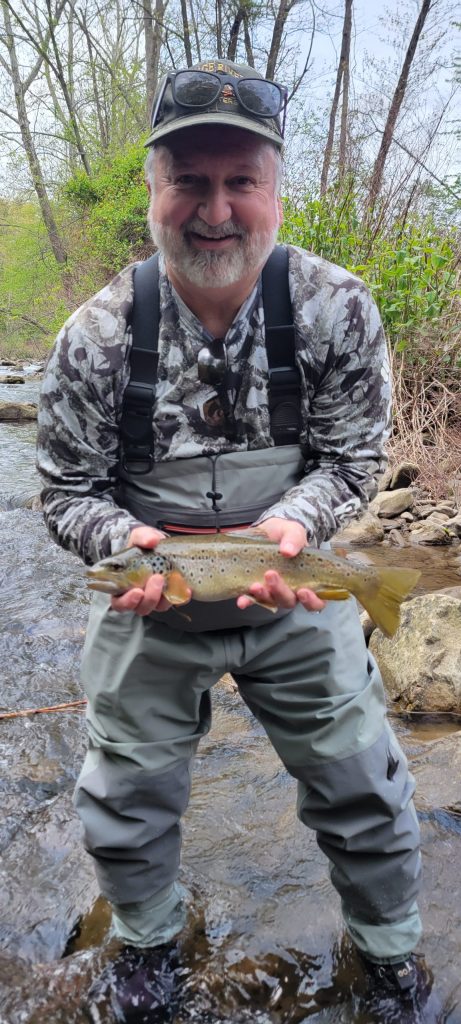
It’s tempting to get poetic with these write ups – but all that needs to be said is that EVERYONE was catching fish, with several brown trout over 16 inches. It really was an incredible day.
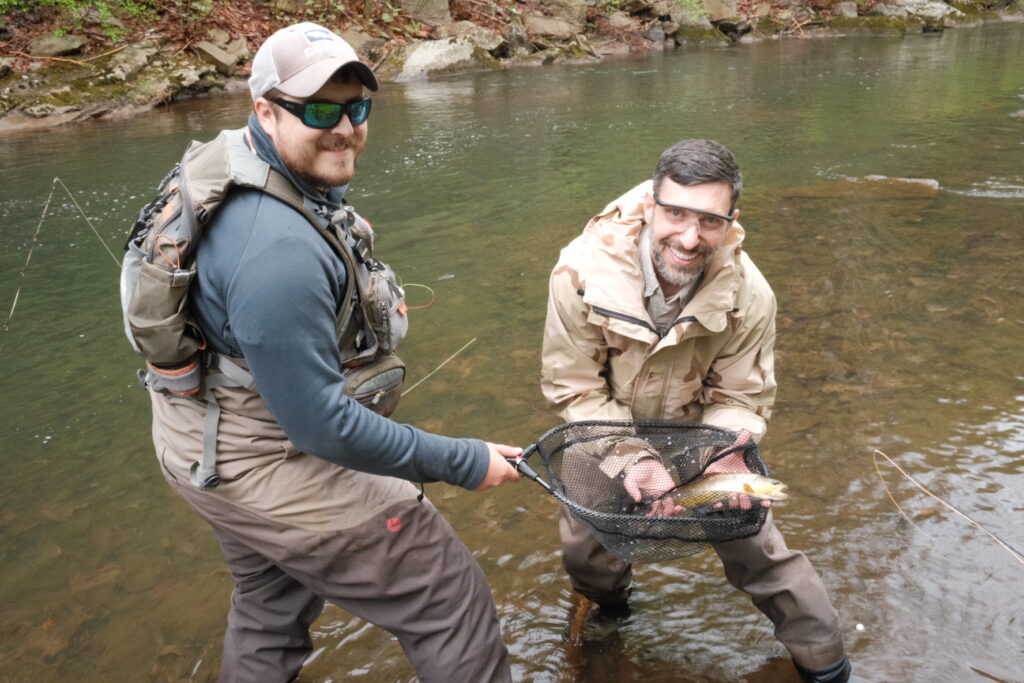
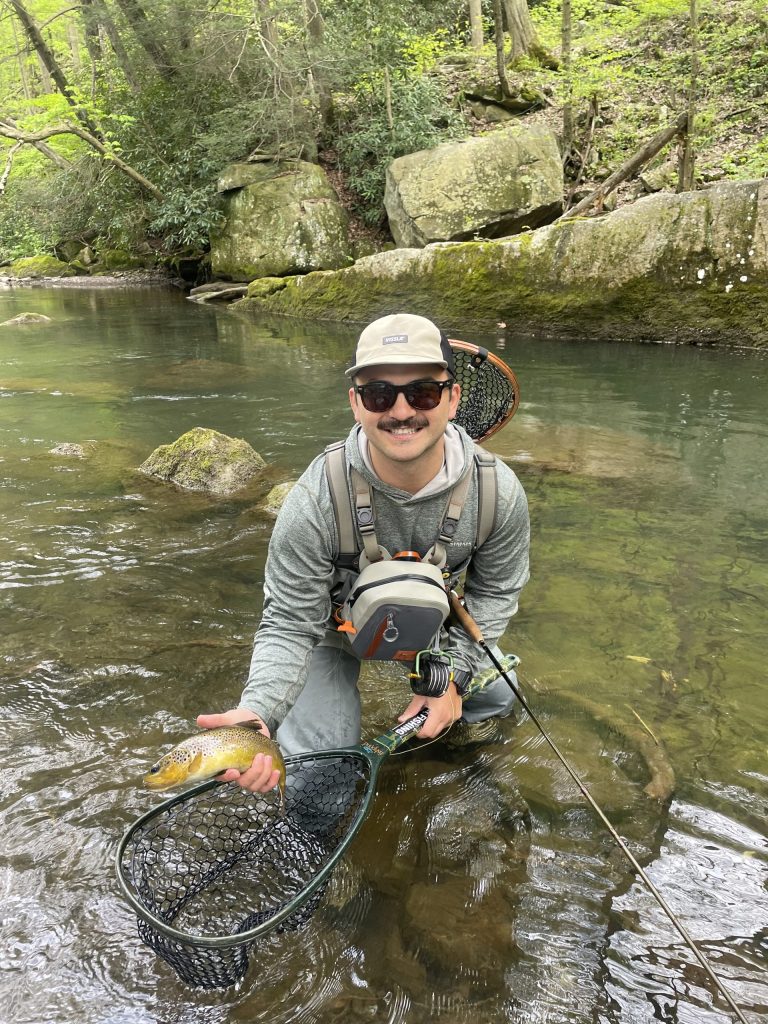
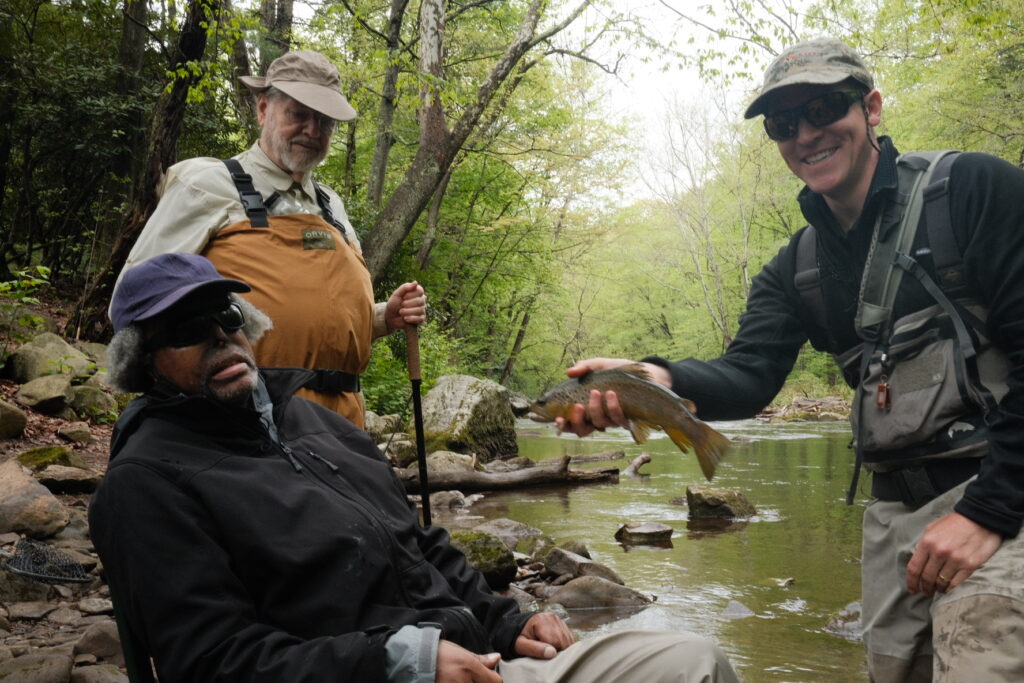
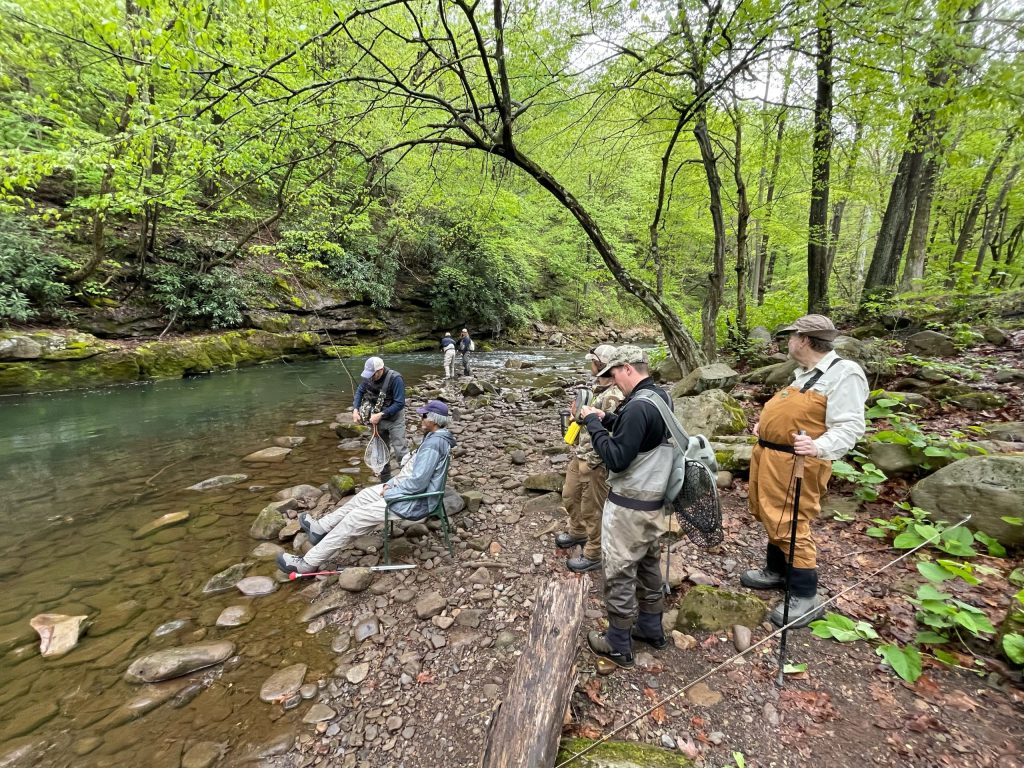
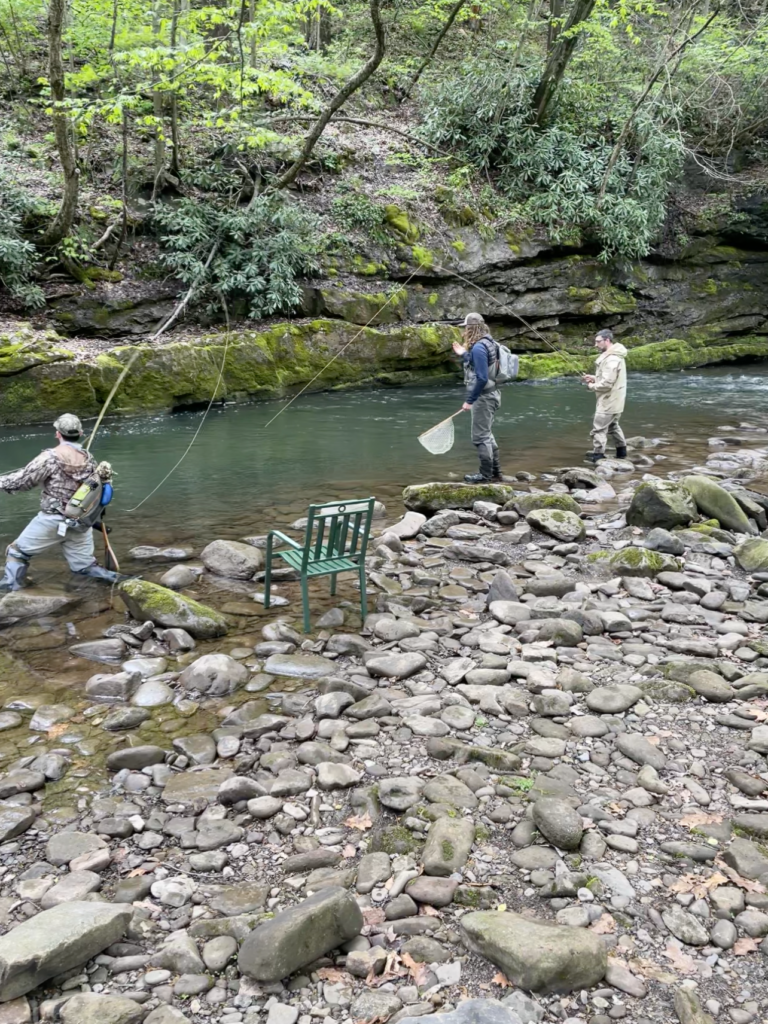
As hard as it was to get people off the water, barbecue chicken seemed to do the trick for almost everyone. Everyone had a nice evening and the camaraderie was at an all-time high. We had a bonfire at the river bank as the sun went down and watched the last few participants coming off the water for dinner. Up until last light, people were still catching fish.
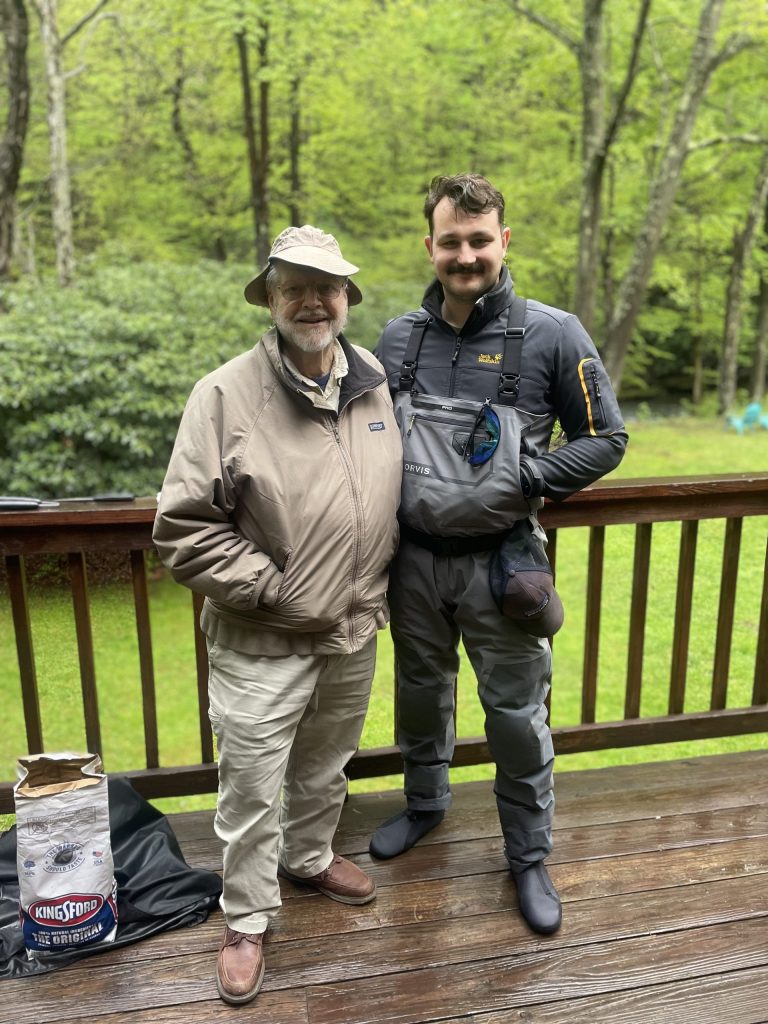
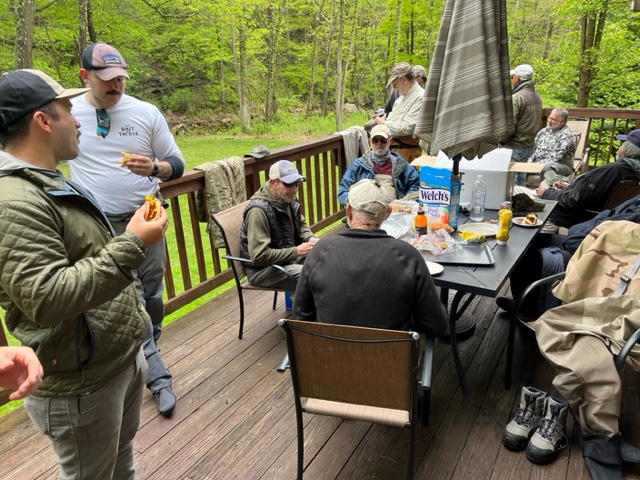
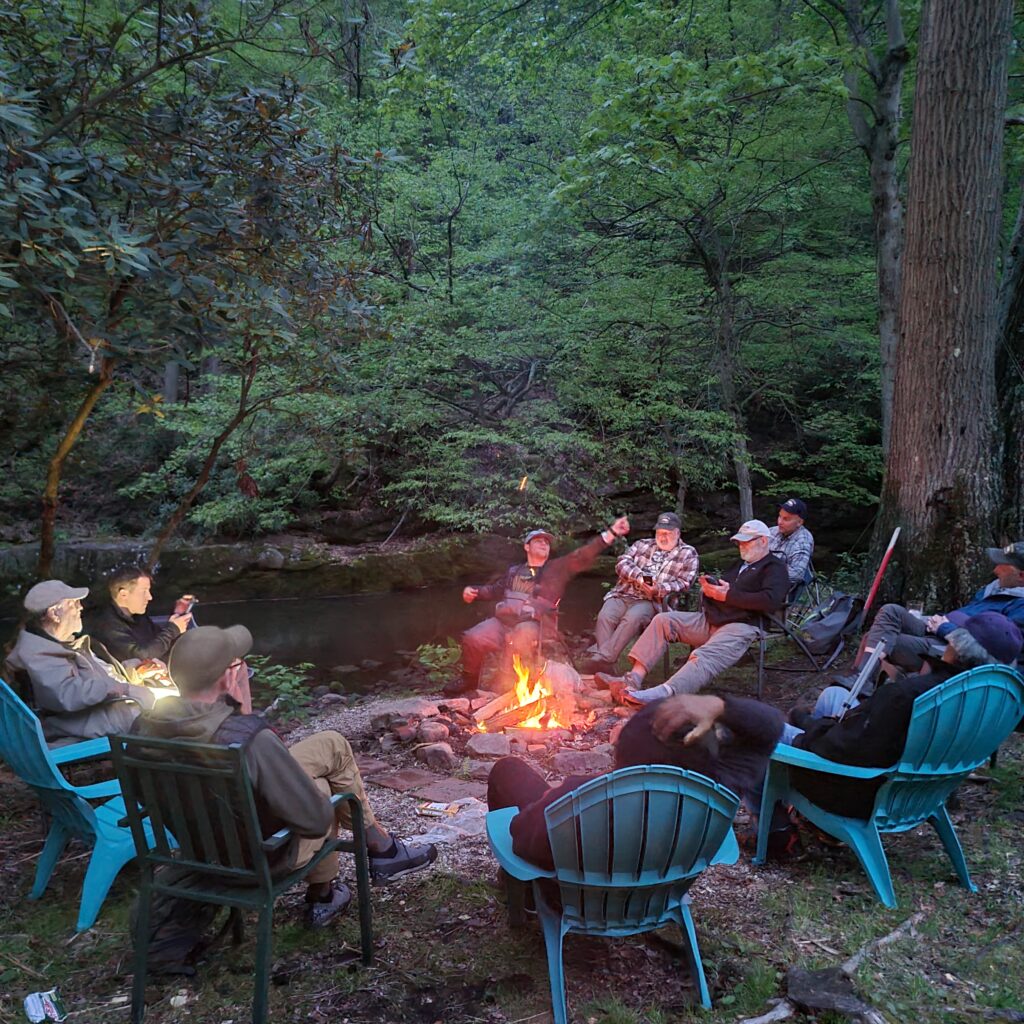
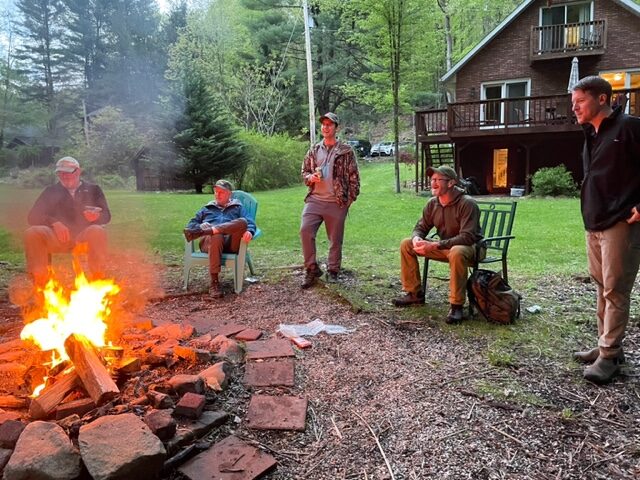
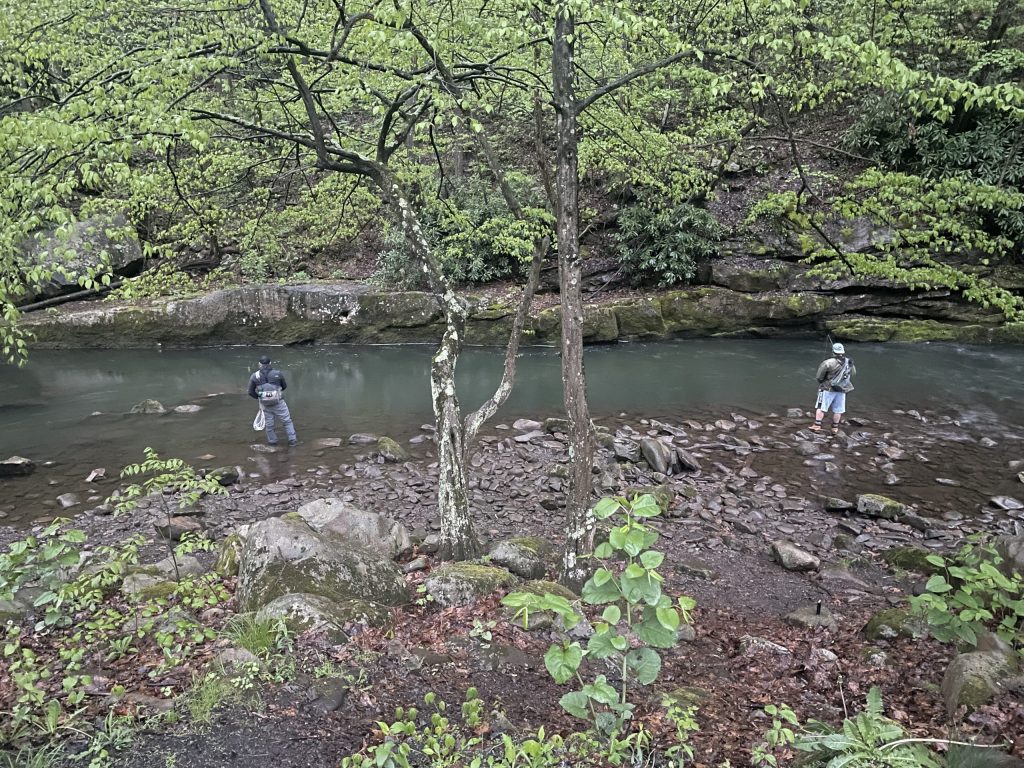
Sunday morning the weather was pretty rough as predicted, and the event formally concluded. However, this did not stop a few of our participants from hitting the water on their way home, and a few more fish were caught, but not quite as good as the day before.
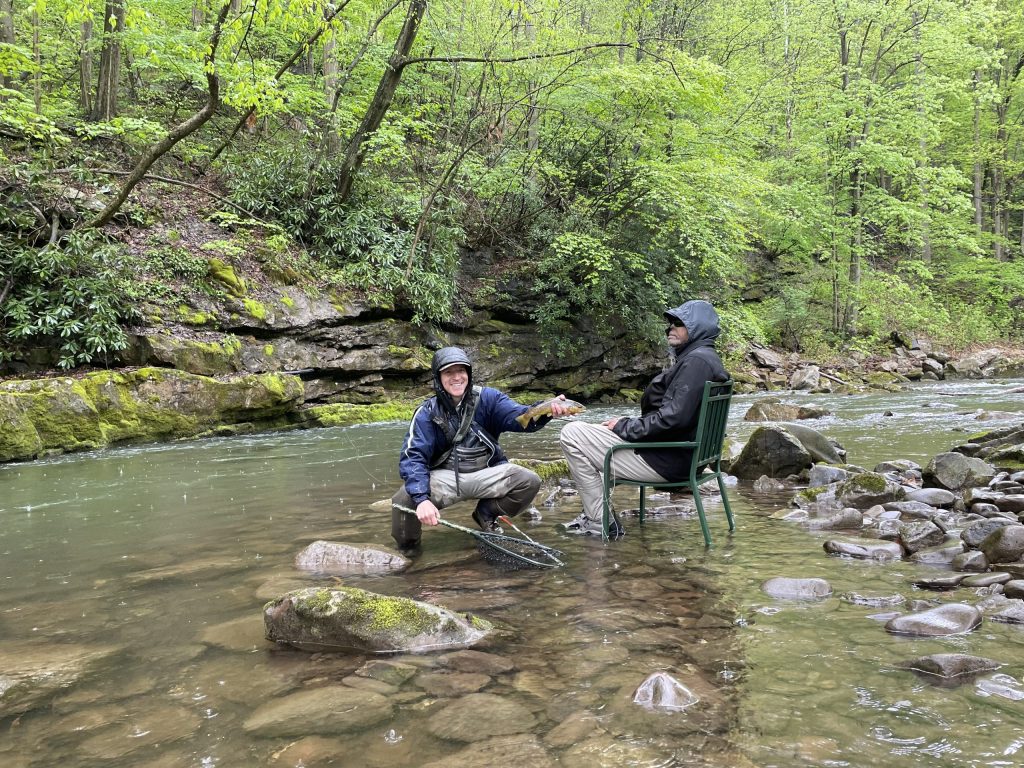
This trip was made possible by a generous donation from the National Park Trust. Project Healing Waters DC originally connected with the National Park Trust at a collaborative event with TAPS in November 2022. The shared commitment to fishing, public land, and the therapeutic properties of time spent outside were the foundation for this great relationship. I want to personally thank Ivan Levin (Director of Strategic Partnerships and Communications) and Nick Weig (Programs Coordinator) for supporting our Program and this relationship. I look forward to continued collaboration between our organizations at the National level.
I also want to thank Mike Evans, Owner of Savage River Outfitters, for supporting this trip. It is really hard to beat the lodging right on the river! The Savage River Outfitters Guides put our participants on fish, and were very helpful in teaching our participants new fishing skills and how to read the water. Charlie Laffey, Brad Urbas, and Ryan Cooper provided wonderful guide services.
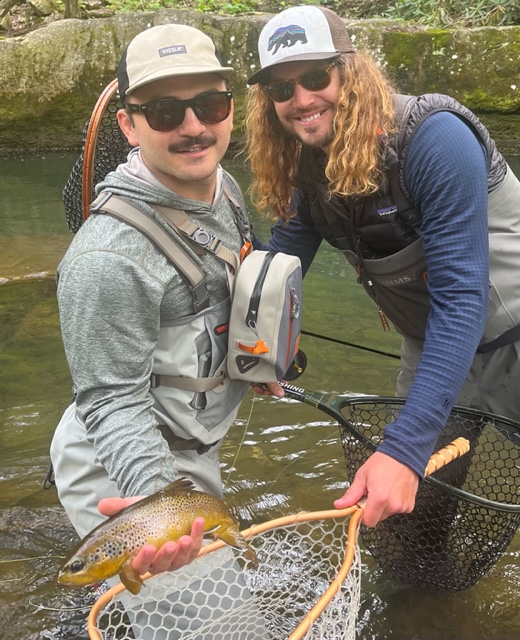
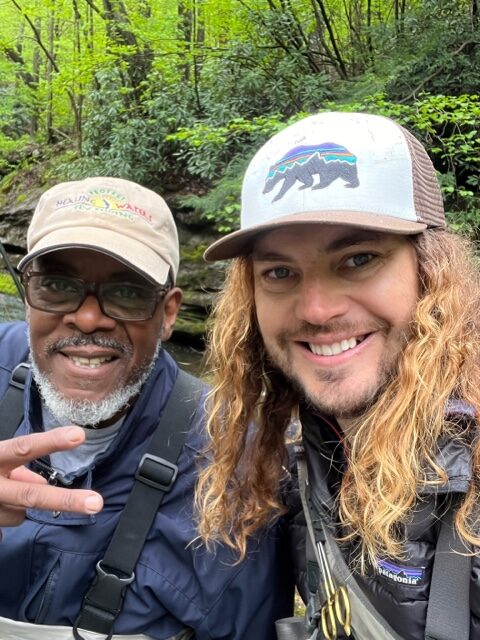
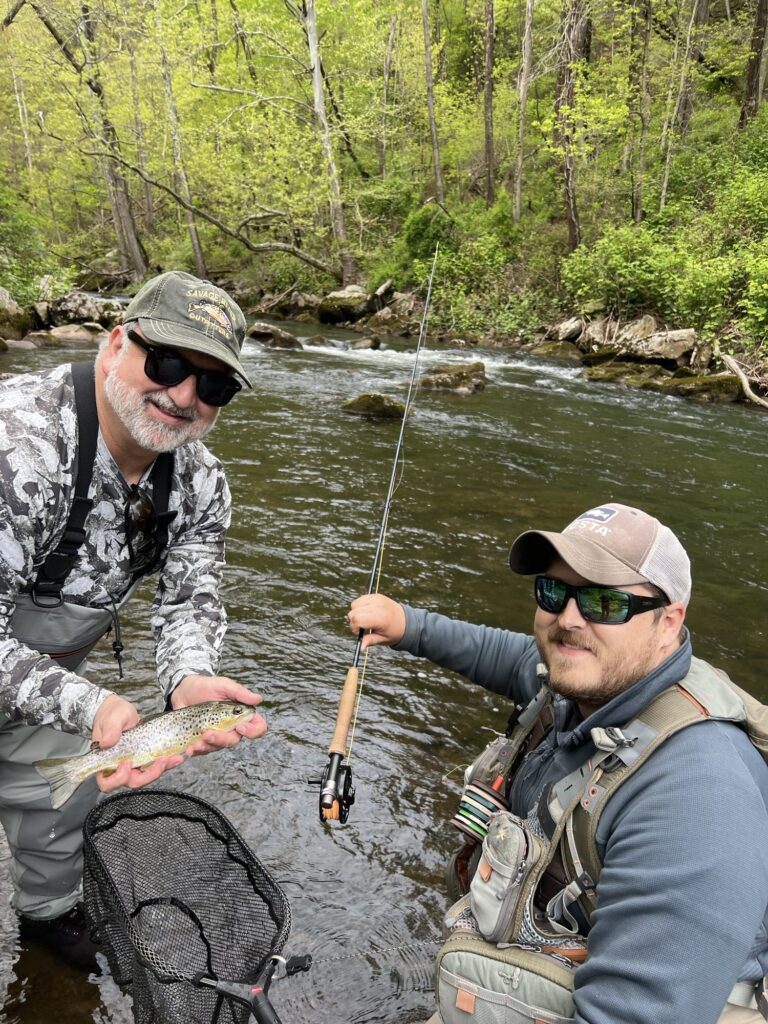
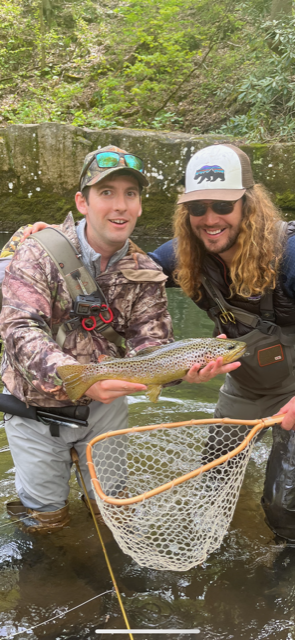
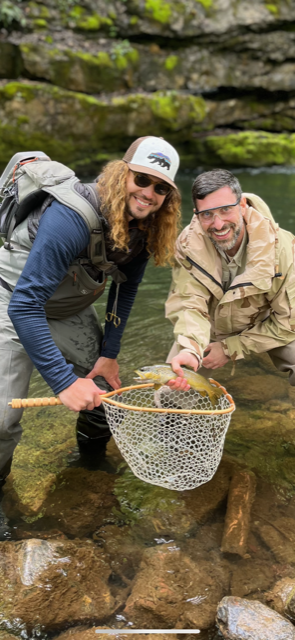

Latest News
- “There’s A Peace You Have Being Out Here.”
- Pennsylvania Veterans Healing Through Fly Fishing
- The Project Healing Waters Spotlight: Marilyn Rogan – Volunteer
- The Project Healing Waters Spotlight: Paul Bohorquez – U.S. Marine Corps Veteran
- Project Healing Waters Tennessee Valley In The News: National Casting Champion Earns The Spotlight!
How to Tie a Vietnam Service Ribbon Fly
March 29, 2023
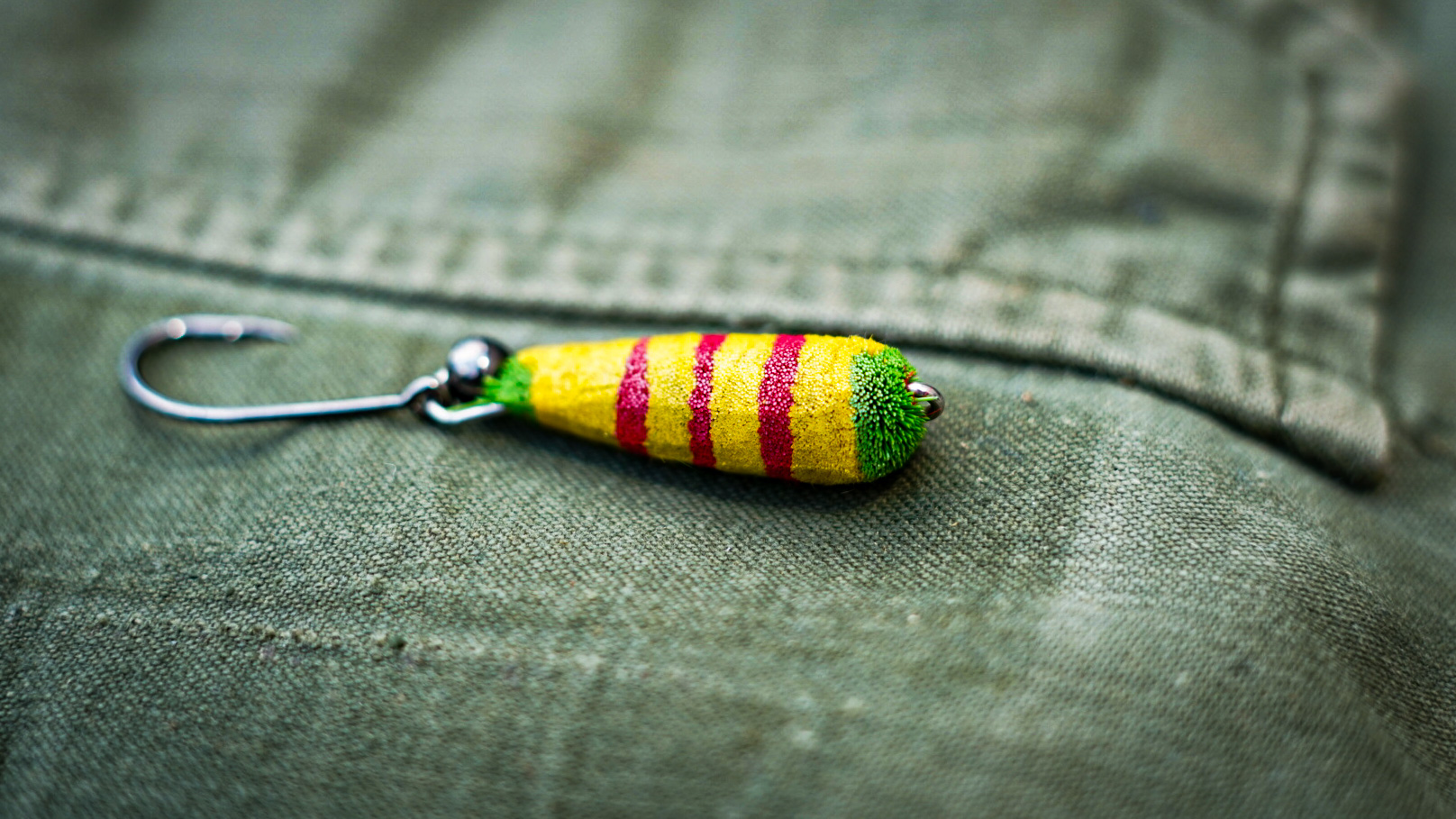
The unmistakable colors of the Vietnam Service Medal Ribbon have been used through the years on a number of fly patterns, from Stimulators to elaborate fully dressed salmon flies.

However, the use of stacked and packed deer hair can be readily applied to reproducing service and campaign ribbons, if you’re ready to commit a bit of time and lose some hair. In this case, Jeff Creamer’s Fido pattern has been shrunk down a bit and simplified slightly to act as the base. Follow along as we tie the pattern, and maybe give it a go yourself!
Materials List:
- 35mm Shank
- Octopus or Stinger Hook of Your Choice
- Ball Bead for Balance
- Deer Belly Hair (Green, Yellow, and Red)
- Strong Thread (GSP or Kevlar preferred)
- Hair Packing Tool of Choice
- Razors for Trimming
- Exceptional Patience
- and/or
- Swear Jar
Latest News
Tips from Fly Rod Building Competition Winners!
September 19, 2022
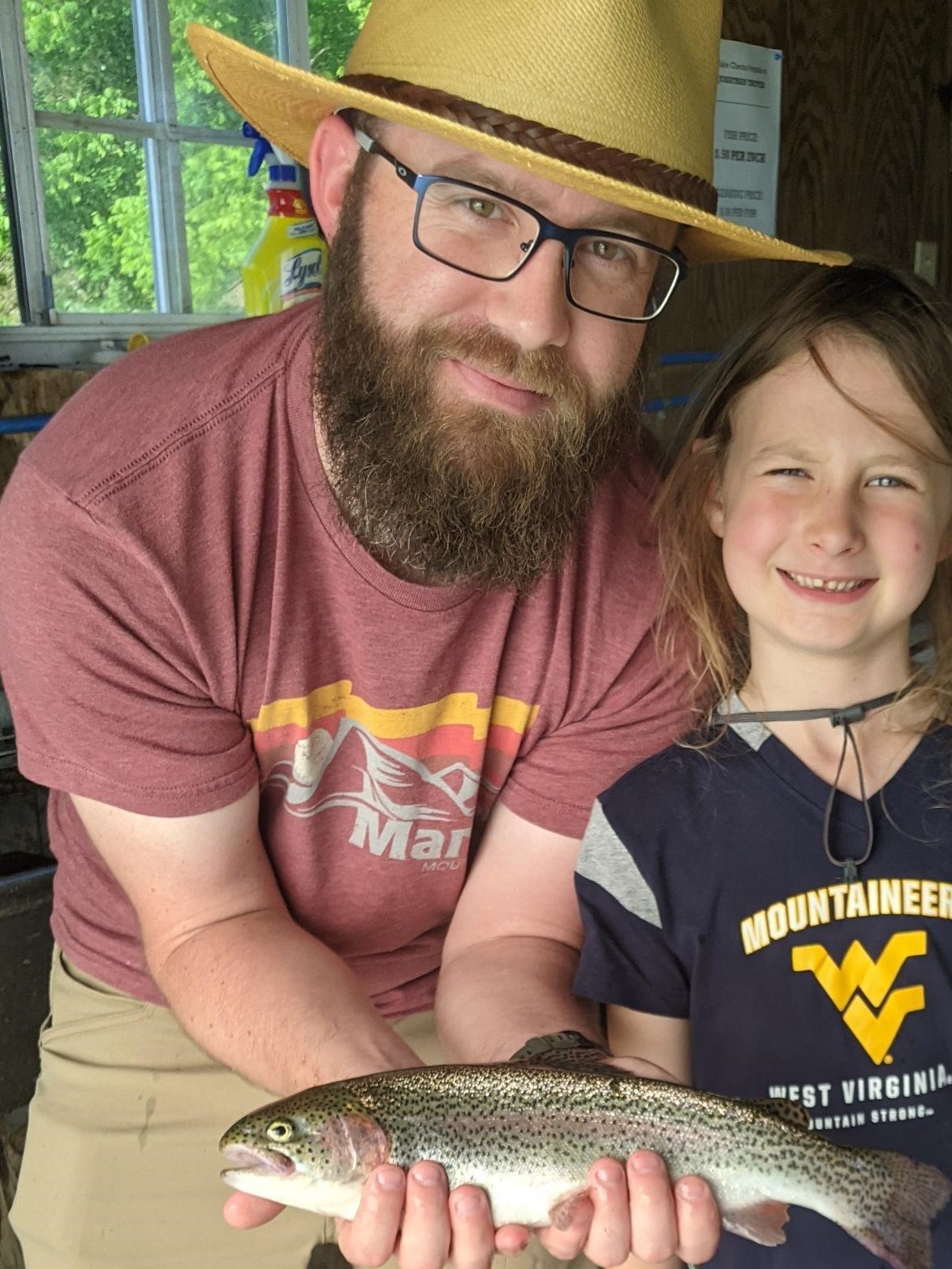
Have you entered a fly rod in this years competition? The submission period closes on October 17, 2022. Contact your Program Lead to started. Only registered participants in the PHWFF program who are registered in an active PHWFF program are eligible to submit fly rods. Professional or sponsored fly rod builders are not eligible to participate. Click here to learn more
We caught up with a few of the Fly Rod Building Competition winners to see where they’re at, how they’re doing, and pick their brain for advice and tips ahead of the 2022 competitions.
John Huffman, PHWFF Shenandoah, VA
2nd Place (Beginner), The 12th Annual PHWFF Fly Rod Building Competition
“I wanted my rod to resemble a brook trout,” John Huffman said of his second-place winning rod last year. Although he ultimately ended up changing the color pattern on his rod a little, he wanted to keep the brookie-esq feel to it, so he took it down to a local stream that inspired him to make the rod, to take photos.

Photo Tips
“I enlisted my wife’s help, who has a really nice camera,” Huffman said. “I looked at websites and other rods that were being manufactured and thought, ‘I could recreate that.’”
Huffman said getting the small details of the rod in the photos were most important, so they tried different angles and lighting as well.
Huffman has been with PHWFF for about two years now, and originally, he admits he just joined so he can catch some fish.
“Now it is so therapeutic to me. It’s therapy without actual therapy. I get so much out of it.”
Huffman mentioned Program Lead for the Shenandoah Valley PHWFF Charles Howdyshell is who inspired him to build a rod.
“He came to me and said, ‘Hey man, I think you should try (building a rod); I think you’d really enjoy it.’ He walked me through the process, and we probably spent hundreds of hours on YouTube looking up videos.”
“Being a first-timer and not knowing what to expect drove me to learn more and do more, and utimately, to showcase something amazing.”

Why Fly Rod Building?
Huffman says for him, rod building is an escape.
“I am at the point where things are getting better (mentally) and PHWFF has continued to build that progress. Your mind just gets lost in the details. That’s 100 hours you’re spending not stressing. Learning the skills and little techniques…it surprised me how much I enjoyed that part as well.”
Huffman would like to tell someone on the fence about building a rod to ‘just do it.’
“If there’s any apprehension, or lack of knowledge, just sit down and give it a shot. Learning can be as simple or difficult as you want to make it.”
Corporal John Huffman enlisted in the Marine Corps in 2003 as a 1371 Combat Engineer with B Co. 4th Combat Engineer Battalion. In 2005, Cpl. Huffman deployed to the Al-Anbar region of Iraq as part of Operation Iraqi Freedom as an engineer attachment to L Co 3rd Battalion 25th Marines. Throughout the deployment, Cpl. Huffman took part in counterinsurgency operations in addition to explosive ordinance disposal as part of Task Force Wolf. It was during these operations that Cpl. Huffman sustained multiple traumas that resulted in PTSD, traumatic brain injury, and a variety of other life-affecting conditions. Growing up in Virginia’s Shenandoah Valley, Cpl. Huffman is a long-time outdoors enthusiast with hobbies to include hunting, fishing, hiking, and kayaking. Recently, Cpl. Huffman has began to explore fly fishing after meeting representatives from Project Healing Waters. He has since become enamored with the intricacies, challenges, and “tight line therapy” found almost exclusively with fly fishing. Cpl. Huffman currently resides in Stuarts Draft, VA with Sylvia, his wife of fifteen years, and their eight-year-old daughter. The family enjoys spending time together outdoors taking part in a myriad of activities where they can appreciate the natural resources offered in their area.
Billy Dailey III, PHWFF Portland, OR Program
1st Place (Advanced), The 12th Annual PHWFF Fly Rod Building Competition
“I am a craftsman in a lot of ways,” Billy Daily said about using his skills to come in first place with his rod in the 12th Annual PHWFF Rod Building Competition in 2020.
As student turned teacher, Daily loves his new role as running the rod building class for his program.
“My favorite part is teaching now and have them turn their own handles. I love teaching and seeing my students learn and get creative.”

Photo Tips
For the photos, Daily enlisted the help of his daughter, who owns a nice Canon camera.
“We played around with different lighting and different angles throughout the day. It definitely helps to have a nice camera or a newer phone.”
Daily said one of his favorite parts of the competition is seeing the different ideas that people bring to the table.
“Most of the (participants) do a military themed rod, or incorporate their campaign ribbons into them. I just love seeing the different people and their ideas showcased.”

Why Fly Rod Building?
Daily says he is always telling people how much the rod building program in many ways, both mentally and physically.
“Without the competition, without PWFF, I don’t think I would have ever thought to go out and make my own rod. It’s a way of expressing yourself that is rather unique. Then when you catch a fish on your own rod, and with your own fly, man…there’s nothing better.”
Robert Bell III, PHWFF Montrose, CO
3rd Place (Intermediate), The 12th Annual PHWFF Fly Rod Building Competition
“When I first told people I wanted to a camouflaged rod, they said ‘I couldn’t’ so I wanted to do it more,” Robert (Bob) Bell said of his third-place winning rod last year. To practice, Bell bought fiberglass arrow shafts and experimented on those to get a perfect balance of not too much camo, but enough to give it an accent.
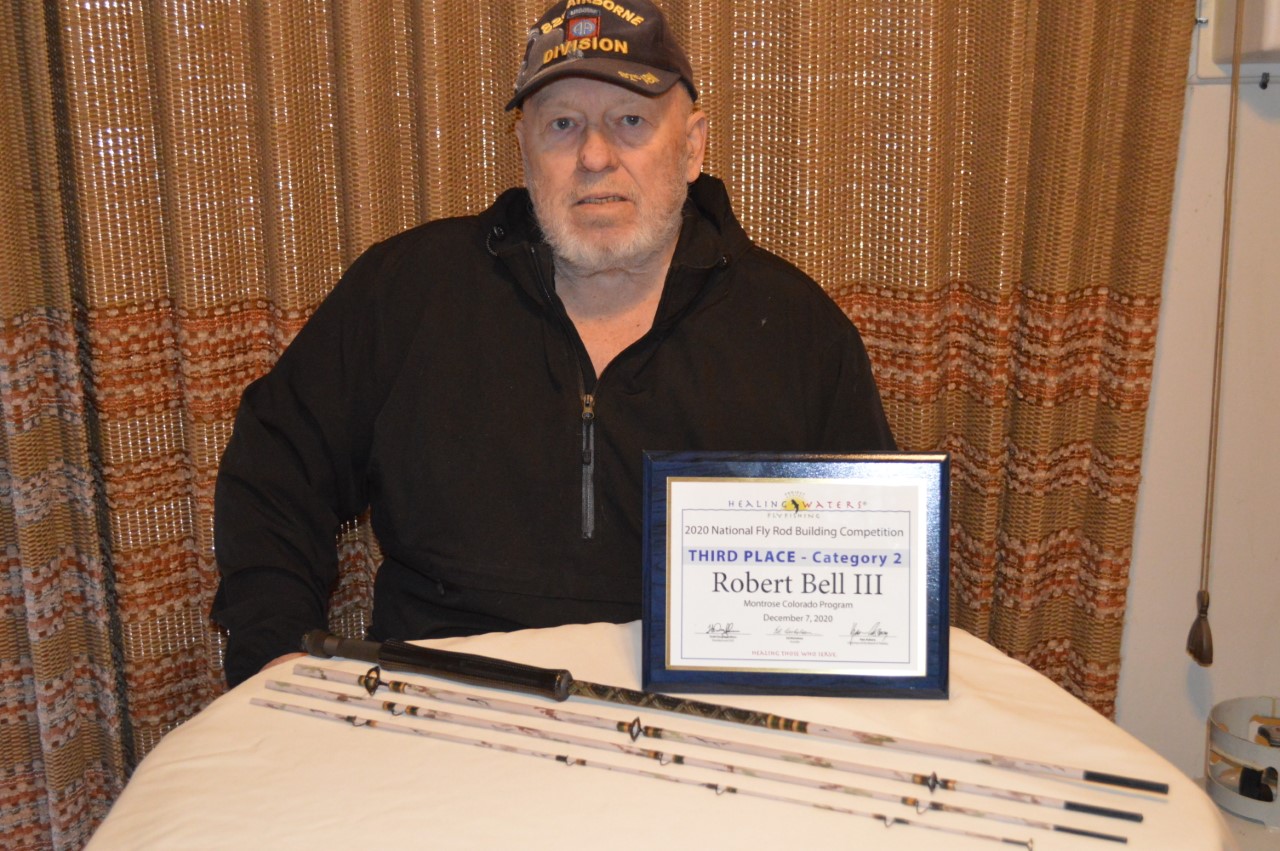
“All the rods are beautiful, but to me they all had the same thing in common. I wanted to think outside of the box and balance my creativity and my pride in building (the rod) and see how I could apply both.”
Bell took his guides, and coated them with Cerakote, a specialized coating that he hopes will help the guides from freezing over on those colder days on the river. “I haven’t had a chance to test it though,” Bell laughed.
Robert Bell joined the military in 1979. He spent 10 years in service making the rank of Sergeant E5. His primary MOS was that of a Quality Control Rotary Wing Aircraft Inspector. After his service he worked for a DoD contractor for an additional 12 years overseas supporting military missions in Southeast Asia, Bosnia-Hercegovina, and National Guard training rotations in Germany from our base in Belgium; again, as a Quality Control Rotary Wing Aircraft Inspector. He then came back to the United States and worked for Addam Aircraft as a fixed wing Quality Control Inspector for three years and was subsequently medically retired. Bell found a new home in Montrose, Colorado and a group of special people in an organization known as Welcome Home Alliance for Veterans. It was here that he was introduced to another group of exceptional people in Project Healing Waters and Gunnison Gorge Anglers, a chapter of Trout Unlimited. Members of Gunnison Gorge Anglers provided instruction, time, and materials for our benefit, for which Bell says he will always be indebted. Project Healing Waters first introduced Bell to fly tying. It was during this program; they were asked who would be interested in building a fly rod. Bell immediately jumped at the chance to do so.

Latest News
- “There’s A Peace You Have Being Out Here.”
- Pennsylvania Veterans Healing Through Fly Fishing
- The Project Healing Waters Spotlight: Marilyn Rogan – Volunteer
- The Project Healing Waters Spotlight: Paul Bohorquez – U.S. Marine Corps Veteran
- Project Healing Waters Tennessee Valley In The News: National Casting Champion Earns The Spotlight!
Tips from Fly-Tying Competition Winners!
September 19, 2022
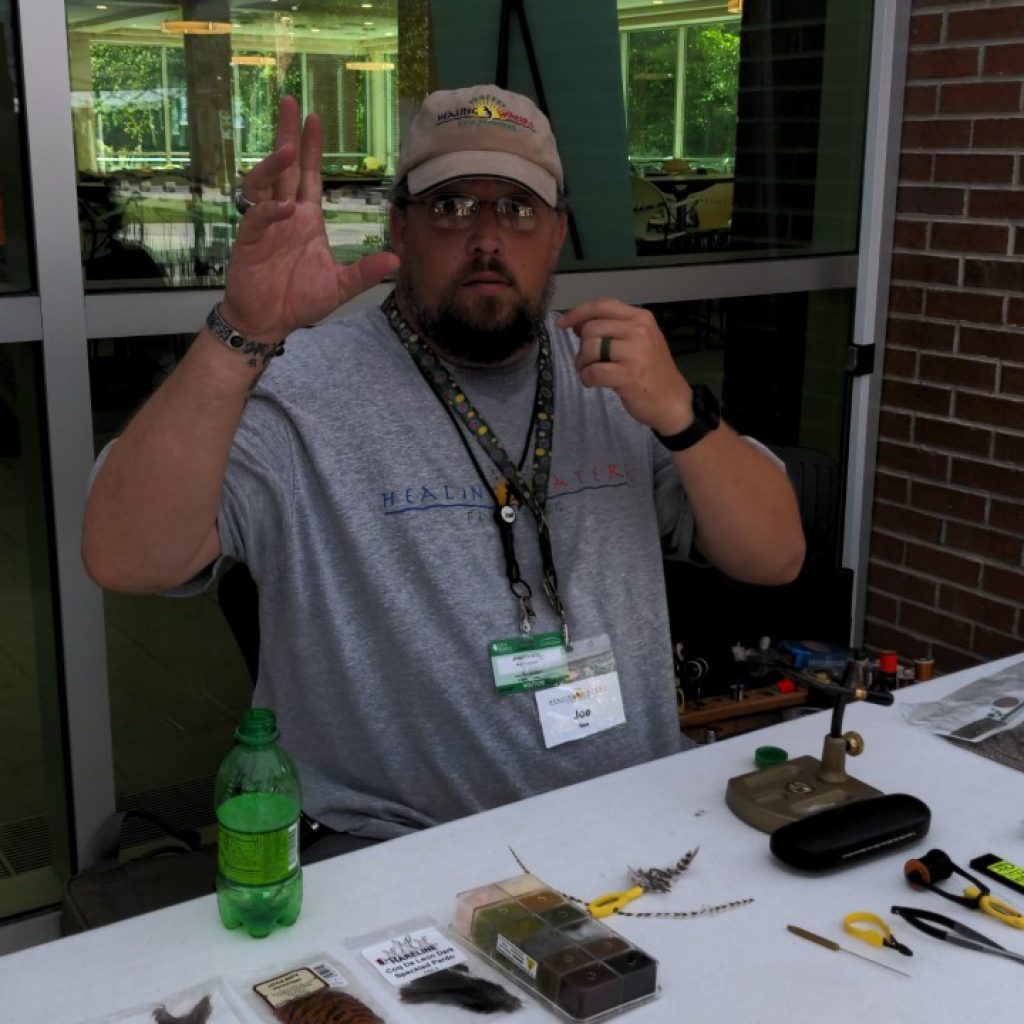
Have you entered a fly in this years competition? The submission period closes on October 1, 2022. Contact your Program Lead to started. Only registered participants in the PHWFF program who are registered in an active PHWFF program are eligible to submit flies. Professional or sponsored fly-tiers are not eligible to participate. Click here to learn more
Contact us at competitions@projecthealingwaters.org for more information and help submitting your fly.
We caught up with a few Fly Tying Competition winners to see where they’re at, how they’re doing, and to pick their brain for advice and tips ahead of the 2022 competition.
Joseph Noe, PHWFF Knoxville, TN
2nd Place (Beginner) in the 8th Annual PHWFF National Fly Tying Competition
“I wanted to create a fly that would hit home for veterans,” Joseph Noe said of his second-place fly in the 2020 PHWFF National Fly Tying Competition.
“With a campaign ribbon, that’s something every veteran can connect with, no matter the branch or the war. When I look at a Vietnam ribbon, I get the same feeling from looking at an Iraq or Afghanistan one. I wanted to create something to make a veteran remember the good times, and not just the bad times.”
Why Fly Tying?
“PHWFF saved my life. I was in a really dark spot. It hit home for me when I started fly tying. It gives me a break from my everyday stress and memories.”
Noe said it is really hard for him to find something that stops his brain from ‘going in circles’, but with fly-tying, he has found his peace.
“With fly-tying, I am able to sit down and focus. I don’t have time to think about all of the other stuff that is in the back of my brain.”
After the competition last year, Noe started tying campaign ribbons for other veterans, and then sending them to veterans across the country, displayed in a shadow box. Noe said sometimes he gets to give the veterans their flies directly, or video chat with them as they see the flies for the first time.
“Watching these vet’s faces light up, it’s always so nice and almost indescribable.”
Photo Tips
“I mostly just wanted to showcase that the flies were campaign ribbons themselves,” Noe said. “Anyone who didn’t deploy to Iraq might not know what the ribbon really looked like.”
Noe was inspired to submit an entry last year simply by just wanting to connect with other veterans around the organization.
“I love that we are a military organization and supports veterans of all eras, not just post-or-pre 9/11 veterans.”
Noe said he really enjoyed watching the other flies come in; to see where people were from and what flies were local to them.
As far as advice for people on the fence about submitting, Noe says, “Just do it.”
“The military taught you one thing, and it’s always ‘go forward.’ Push yourself and if it’s something you want to do, just do it.” .Sgt. Joseph Noe (Ret) grew up in East Tennessee and Southwest Virginia with my grandparents. During high school, Noe entered the AFJROTC program for three years and reached the rank of Cadet Chief Master Sergeant. Noe served in the United States Army from 2003 until December of 2007, when he was medically retired due to PTSD and multiple physical injuries. In 2019, Noe was introduced to Project Healing Waters Fly Fishing in Knoxville, TN. Fly fishing and tying with PHWFF has been a great hobby for him because it helps him to free his mind from thinking about the past. Being able to relate with the volunteers and build friendships with other disabled veterans like himself has helped Noe become more social and open to other people. Last year, Noe entered the annual PHWFF National Fly-Tying Competition and was awarded second place at the beginner level. The fly he chose to submit was an OIF ribbon on a Stimulator. Since the competition, Noe has continued tying this fly for several other OIF veterans, as well as designing flies with other campaign ribbons for veterans around the U.S.
Bernard “Gary” King, PHWFF Conroe, TX
2nd Place (Advanced) in the 8th Annual PHWFF National Fly Tying Competition
“I really like the history of flies,” Bernard “Gary” King said. “That’s why I don’t really develop new ones.”
“Take the Prince nymph for example, I believe they were called ‘brown fork tails’ until David Prince got a hold of some.”
King picked the Prince Nymph to tie in 2020 because of its difficulty.
“I had tied a Copper John the year before, and I think the tails can look really good if you get them at the same angle.”
With the difficulty of the tails and the wings and getting them the same size and angle, King says that difficulty helps get him more points from the judges.
Photo Tips
“I am not a good photographer,” King laughed. King worked diligently to tie the flies before the deadline, and then he had a friend with better camera skills then him come over and help him take photos.
“We probably took over 100 pictures of the flies. Trying to get the right angles and lighting.”
Why Fly Tying?
“I just like learning about the history behind the fly before I start tying. Both the research and the tying helps take my mind off of things.”
When the pandemic hit, King felt like it was an opportunity to do something good for other people, and taught fly-tying virtually with his program.
For anyone on the fence about whether to make a submission, King said he would be more than happy to help.
When asked about his favorite part of the competitions?
“Well, winning of course!”
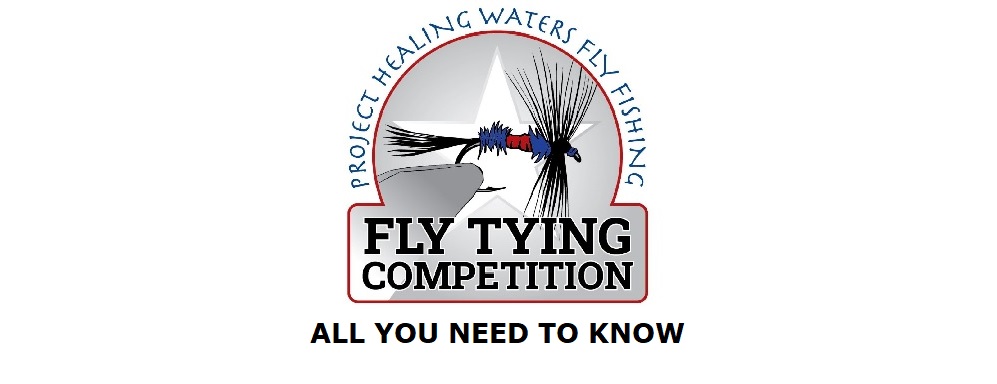
Latest News
- “There’s A Peace You Have Being Out Here.”
- Pennsylvania Veterans Healing Through Fly Fishing
- The Project Healing Waters Spotlight: Marilyn Rogan – Volunteer
- The Project Healing Waters Spotlight: Paul Bohorquez – U.S. Marine Corps Veteran
- Project Healing Waters Tennessee Valley In The News: National Casting Champion Earns The Spotlight!
Healing Those Who Serve on #GivingTuesday
November 20, 2019
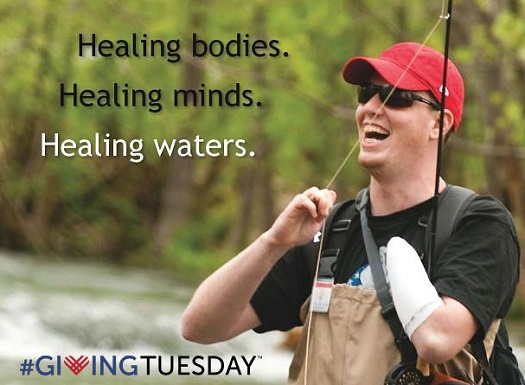
On Tuesday, December 3, 2019 Project Healing Waters Fly Fishing is participating in #GivingTuesday, a global day dedicated to giving. We invite you to join the movement and to help raise funds for the veterans we serve this November 28th. Let’s start with a few ideas and messages to help you spread the word about our cause online this #GivingTuesday.
Encourage your friends, family, and colleagues to visit www.projecthealingwaters.org/givingtuesday to learn about this special day of giving and how they can help.
Here are a few sample messages to help you heal those who serve this #GivingTuesday:
“Save the date: #GivingTuesday is December 3rd! You can be part of the celebration by giving back to the veterans who have served our country. Visit www.projecthealingwaters.org/givingtuesday to find out more.
“This past year alone, more than 4,000 volunteers served over 8,300 disabled veteran participants nationwide. Program numbers are growing fast too, bringing fly fishing to more veterans and active military than ever before. With over 3.8 million disabled veterans nationwide, we currently serve 8,300. The PHWFF goal for 20202 is to bring our program services to thousands more disabled veterans nationwide. To make this a reality, they need your help on #GivingTuesday! Visit www.projecthealingwaters.org/givingtuesday to get started!”
Make a donation TODAY and provide veterans with the support they need on their journey to recovery #GivingTuesday https://projecthealingwaters.networkforgood.com/projects/62647-givingtuesday
Follow us on social media for up-to-date information, images, and exciting announcements about our cause and #GivingTuesday.
We encourage you to share these messages and help us get out the give for the veterans we serve
Find us on Facebook by clicking here
Find us on Twitter at @PHWFF
Find us on Instagram at @PHWFF
Thank you for your great support of our cause and the veterans we serve!
We’re looking forward to a terrific #GivingTuesday
Click here for more #GivingTuesday Resources
Disabled Veterans Enjoy an Outing to Bedford County, PA
November 7, 2019
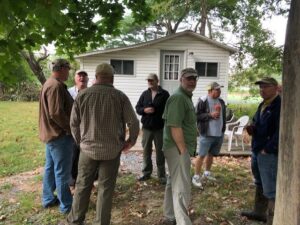
A dozen flyfishers, representing every corner of the commonwealth, recently converged on Bedford County, PA for a weekend of fly fishing and healing as part of the 3rd Annual Project Healing Waters Fly Fishing Yellow Creek Outing. They were treated to a fabulous weekend, with the opportunity to fish three of the area’s best trout waters.
The PHWFF veterans began arriving throughout the afternoon on Friday, and were able to fish the Raystown Branch of the Juniata River which flowed directly beside the cabins that they would call home for the weekend on their own schedule. After fishing at their leisure, they settled down to enjoy dinner, relax, catch up with old friends, make new friends, and get ready for the official event to begin on Saturday morning.
After a hearty breakfast cooked at their cabins on Saturday morning, the veterans drove to the nearby Bob’s Creek to meet their guides, all generous volunteers from the local TU chapter who turned out to assist and mentor the veterans on their home waters. One of those guides was John Zielezinski, who has been fishing these waters for decades, and also volunteering since the first year of this event. When asked why he continues to come out and help the veterans, he said, “It’s good to pass it on, the skills and the information. I get a lot of enjoyment from being out here, it’s nice to help others enjoy it out here”. The enjoyment of the outdoors, the fly fishing and the camaraderie amongst the participants are all key parts of the healing process for the veterans, and the selfless assistance offered by the guides plays a huge part in allowing that to happen.
Bob’s Creek was especially low and clear, making for tough and technical fishing. Most of the veterans found the task of fishing the “skinny water” a challenge while also being a great opportunity to hone their skills. Regardless of the difficulty in dealing with the conditions, the veterans still managed to catch a good number of trout, with a mix of stocked and wild fish being caught and released throughout the day.
Mike Fuhrman, a participant from the Lebanon program, was one of those taking advantage of the benefits offered by fly fishing with other veterans, and appreciative of what he is gaining from PHWFF. He remarked, “It’s great to get around other veterans like this. It’s a program that I would like to see more veterans get involved in”.
Jocko Harris, an Army veteran with the West Bradford program, has been a participant with Project Healing Waters for about a year. He had more positive things to add about the PHWFF organization. “Everybody here is humble. Everybody’s willing to help, but you also have to be willing to give back sometimes”. He added, “Some of us have outer injuries, some of us have internal injuries. Project Healing Waters is not just about fishing. It’s about bringing you peace and contentment so that you can live a more productive life”.
On Sunday, the veterans fished another local stream, Yellow Creek. While also low due to the time of year, Yellow Creek proved to be much more fishable for most of the veterans. Again, a good number of trout were caught, including many wild fish, which was a new experience for many of the veterans. One reason for that success was volunteer Tim Clingerman, who provides his time and expertise to guide, along with his contacts to obtain access to some highly desirable private water for the veterans. He commented, “When you have people learning how to fly fish, you do not want them to go away empty handed. All of these guys listen to what we suggest. They’re eager to learn, they pay attention, and they pick it up. You can see the great camaraderie, they’re cheering for each other, it relaxes them, and they do so much better that way. I had some great mentors when I was younger; that’s why I’m happy to in turn be passing it along now”.
After a weekend full of fishing, the veterans, along with their guides, met at the Horn O’ Plenty restaurant in Bedford for a delicious and private pizza dinner. The restaurant, along with the cabins that the veterans stayed in throughout the weekend, is owned by Jeff Horn and his wife Mandi. The Horns have graciously made their facilities available to the PHWFF veterans for the past three years, as well as provided all of the meals, including streamside lunches. When asked why he is such a solid supporter of the PHWFF organization, Horn said, “I know that when these guys are together fishing, everything is okay for them”.
Another solid supporter is the Fort Bedford chapter of Trout Unlimited. As in each of the past three years that this outing has taken place, they have hosted the veterans and provided all of the guides for the veterans, as well as supplying each one with a fly box stocked with flies appropriate for the local waters, all tied by the TU members. Rylan Schnably, president of the Fort Bedford TU chapter, said that his group anticipates this event every year. “Our guys can get out here and hang out with guys that are fun to fish with. As much as you guys love coming here to fish, we really appreciate you guys coming down here”.
Craig Brandick, Erie program lead and the trip lead for this outing, probably knows better than most about the healing properties of these outings. Besides his involvement in PHWFF, he is also an ordained minister and counselor. His background offers him a unique perspective on the ability of fly fishing to help mend the disabilities experienced by the participants on these outings. He noted, “When we see a person who is in trauma, a person who is troubled through events and other scars of life, it is easy for any of us to become self-absorbed. What I try to demonstrate in front of our veterans is ‘What is it that you most want somebody to do for you? Find somebody who needs help and do that for them'”. He went on to add, “We are not a fishing club; we are not a one time event; we are not a group for recreation; what we are is a program for rehabilitation. There are various and varied levels of experience when it comes to fly fishing; the readiness and willingness of some of our participants to help others who might not have as much experience, that stands out. It only works if we’re not selfish”. Along with talking about participants being eager to help fellow participants, he was also quick to thank and note the assistance of the TU guides. “This has been such a phenomenal weekend. They’re willing to step out and help our veterans with limited mobility. One of the guides was always ready with another rod rigged up and ready to go. When the veteran would get tangled up, he would hand the second rod to the veteran, take the first rod, and work on getting the fly out of the tree while the veteran was able to continue on fishing. That takes patience, and takes a person who is first and foremost there to help our veterans”. Clingerman had similar praise for the PHWFF participants, saying “I can tell, it really relaxes the veterans. We talk about this pretty much all year at TU. We really look forward to the veterans coming here. It’s a huge honor for us to fish with them. I would love Project Healing Waters and Trout Unlimited to continue our relationship”.
As stated in their mission, Project Healing Waters Fly Fishing is dedicated to the physical and emotional rehabilitation of disabled active military service personnel and disabled veterans through fly fishing and associated activities including education and outings. Events such as the Yellow Creek outing allow for that rehabilitation to take place, through bonding with veterans in similar situations. Perhaps Harris summed up the PHWFF mission best when he said, “Everything that’s negative in the outside world, we don’t have here at Project Healing Waters. And if the world would adopt the principles of Project Healing Waters, we wouldn’t have as many problems as we have”.
Disabled Veterans Enjoy Phenomenal Fishing on Arkansas’s Little Red River
October 31, 2019
September 9 – 13, 2019 — Thanks to the generosity of the Disabled Veterans National Foundation (DVNF), 8 disabled veteran from Project Healing Waters Fly Fishing programs enjoyed a spectacular few days of fishing and fellowship on Arkansas’s famed Little Red River.
The Little Red River is a prolific tail-water trout fishery. It is widely known for its 100% self-sustaining Brown Trout population that in 1992 produced a World Record Brown Trout which stood for 17 years. The Little Red is also heavily stocked with Rainbow Trout by the Arkansas Game and Fish Commission. This once-in-a-lifetime fly fishing experience brought the veterans to The Cabins at Lobo Landing where they enjoyed fantastic meals, fly tying, fellowship and phenomenal fishing for three days.
The fishing was prolific! Volunteer outing leader Tim Lewis remarked, “When the participants came back from lunch they were all amazed on how the fishing was on the Little Red. They said they had 50 fish in the boat before lunch! I told them that is not a normal day around here and don’t get use to it. They all laughed. After lunch and a little rest all the participants returned to the boats and headed back out on their fishing journey. The participants returned, we had a great dinner and everyone talked about the great fishing as each boat caught another 50 fish in the afternoon….Everybody retreated to their cabins laughing and in a good mood.”
After a great few days, the group collectively proclaimed their desire to return to the Little Red again soon.
Anchorage PHWFF Welcomes Athletes to VA Golden Age Games
June 6, 2019
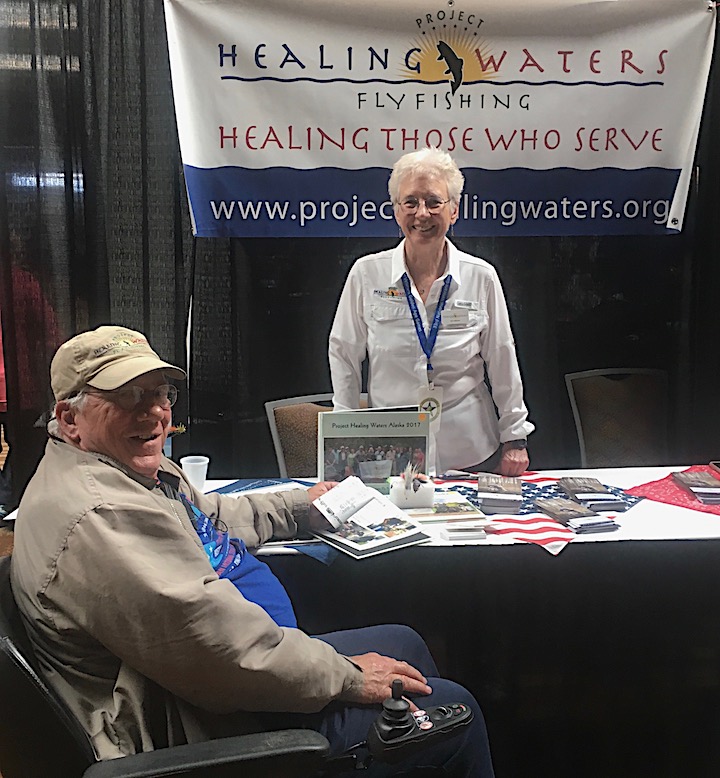
On June 5th at the start of the Golden Age Games designed for veterans who are 55 and older, the VA sponsored a Health and Wellness Expo that featured information tables on a variety of health and wellness services available to VA veterans. PHWFF Anchorage staffed a table designed to illustrate the core activities of fly tying, fly casting, fishing education, rod building, and fishing outings that aid in the emotional and physical rehabilitation of disabled active military service personnel and veterans.
Jan and PHWFF Participant
Many athletes specifically stopped and talked to us about their local programs in California, Arizona, Montana, Texas, Oklahoma, Nebraska, Illinois, Tennessee, Florida, Maryland, and New York and some were wearing their PHWFF hats! It was pure joy to listen to them talk about their programs and how PHWFF saved and improved their lives.
Two PHWFF athletes from LA
A special thanks goes to Leslie Holland-Bartels for helping to staff the information table.
Numerous PHWFF volunteers and participants are serving as volunteers for this event during the next five days. Best wishes to all the athletes!
Fund Raiser for PHWFF Alaska
May 14, 2019

Fund Raiser for Project Healing Waters Fly Fishing Alaska – Fishing Garage Sale
Come and browse fly, casting and spinning rods, waders, rod cases, boxes of hand made flies and other fishing supplies (spinners, bobbers, etc.). All proceeds help support Project Healing Waters Fly Fishing trips for disabled veterans.
Date & Time: May 18, 2019 9 AM to Noon
Location: 17739 Chilkat Court, Eagle River
Take a good look at the 3 wt Sage Graphite rod below.

This lightly used vintage rod is a Graphite III rod (380 RPL) that comes with a rod sox and aluminum rod case. It is perfect for anyone stalking grayling in small streams in Alaska. This 2 piece is 8 ft long so it won’t get caught on brush like 9 ft rods. It weighs in at 2 ½ oz – light as a feather!
JBER Volunteer Excellence Award Given to David Rooker
April 19, 2019
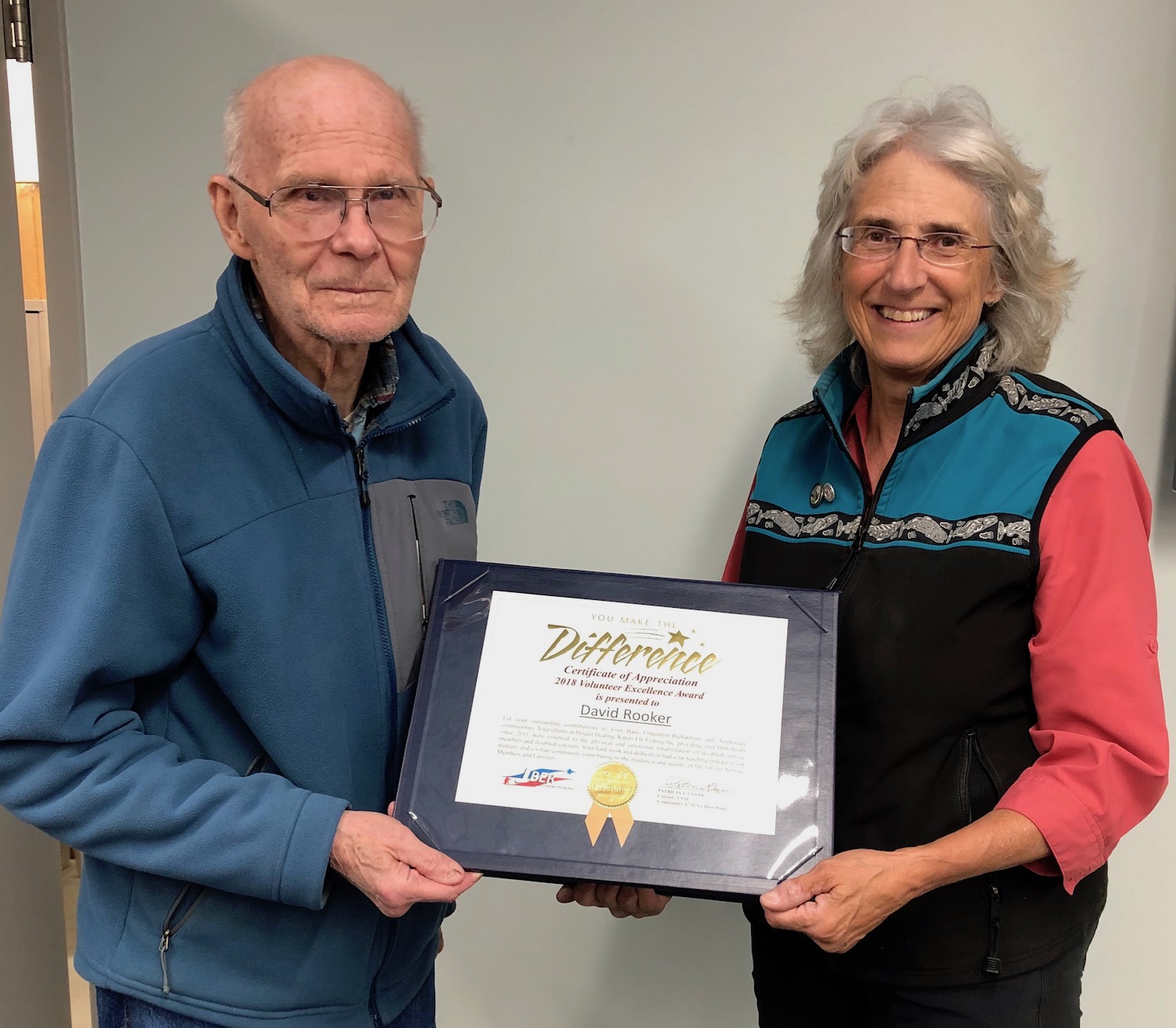
The Volunteer Excellence Award authorized by the Chief of Staff of the Air Force is designed to recognize federal civilians, family members, military retirees, and federal retirees who perform outstanding volunteer community service. To be eligible, an individual’s service has to be performed either in the local civilian community or in the military family community, and be of a sustained and direct nature and is considered a “life-time” award. It is with great pleasure that we announce that David Rooker received this award at the JBER Annual Recognition Ceremony on April 16th.
David Rooker and Leslie Holland-Bartels
David has guided the beginning fly tying portion of Project Healing Waters Fly Fishing-Anchorage for a decade, volunteering nearly 400 hours in 2018 adding to his +1600 hours since 2011. His hours of volunteerism alone don’t come close to illustrating his impact on the disabled and injured. His knowledge, openness to share, and quiet, self-effacing manner always do the trick. Whether the participant is struggling with PTSD, TBI, or a suite of other challenges, David is there to help guide the impatient, the coordination challenged, or the participant who just needs to know they can master a new skill or regain a lost one. At the tying table he chats about getting out fishing on lakes and the joy and adventures he gains from fly fishing. As a retiree from USAF he chats easily about military life and shares and listens to stories. David makes fly tying approachable by working slowly, step by step through early skill development and is the first one to laugh at his own mistakes. He carries all of these skills over to the Fisher House on JBER every Wednesday evening as well to help those families take their minds off of their medical worries just for a time.
David Rooker is skilled, kind-hearted, approachable, and committed to the long haul. These are the gifts his volunteerism gives to the men and women of JBER and the disabled veterans of Anchorage who hope fly fishing will help them find a way back to health.
